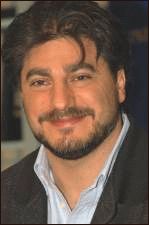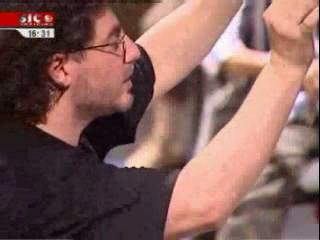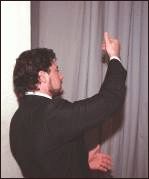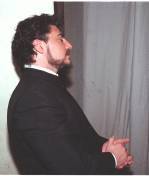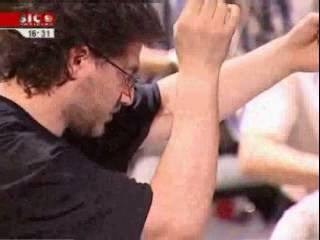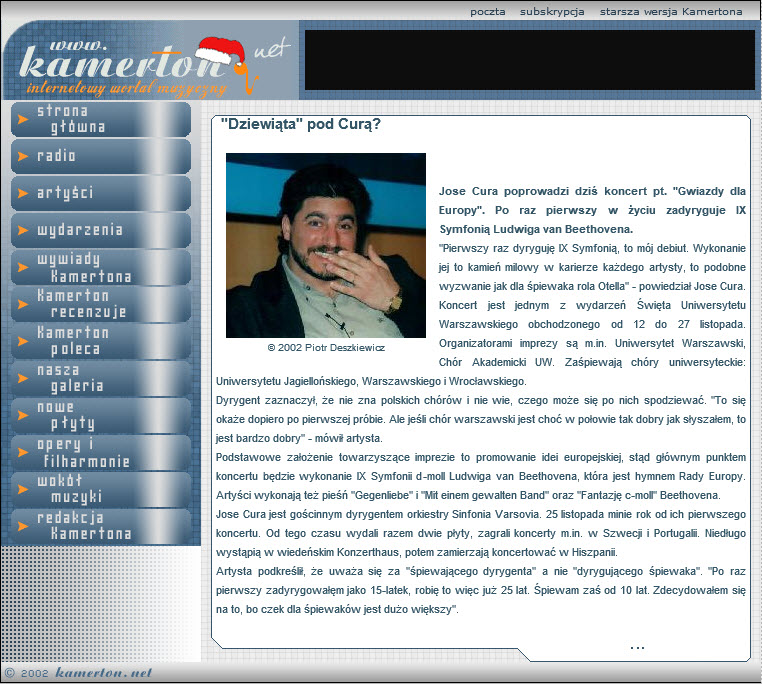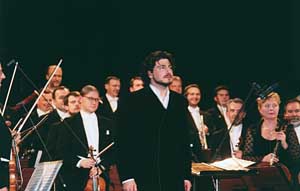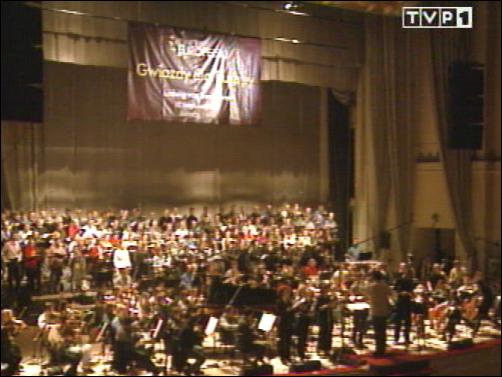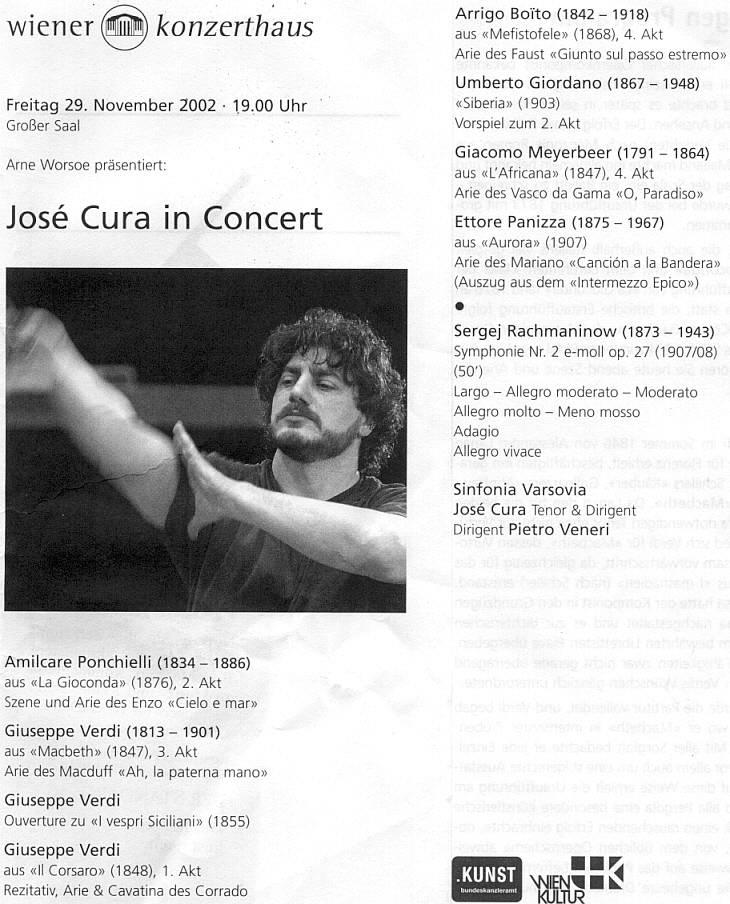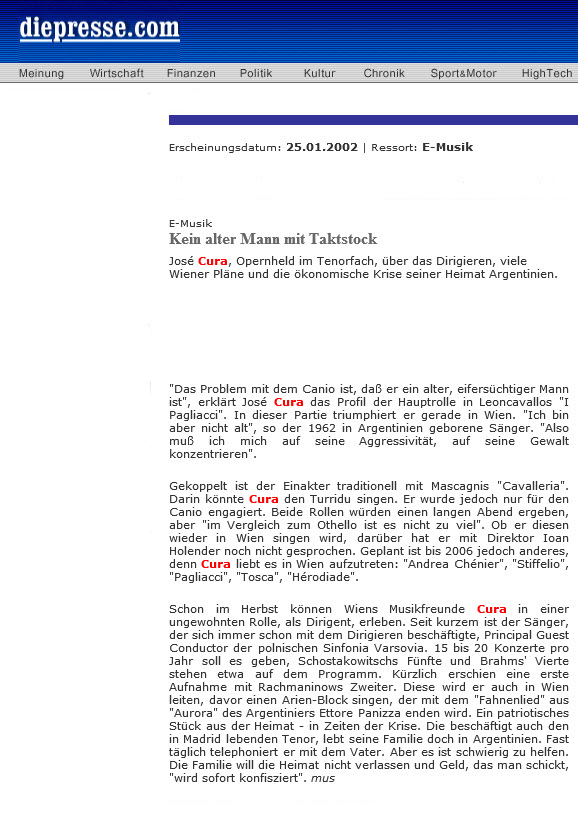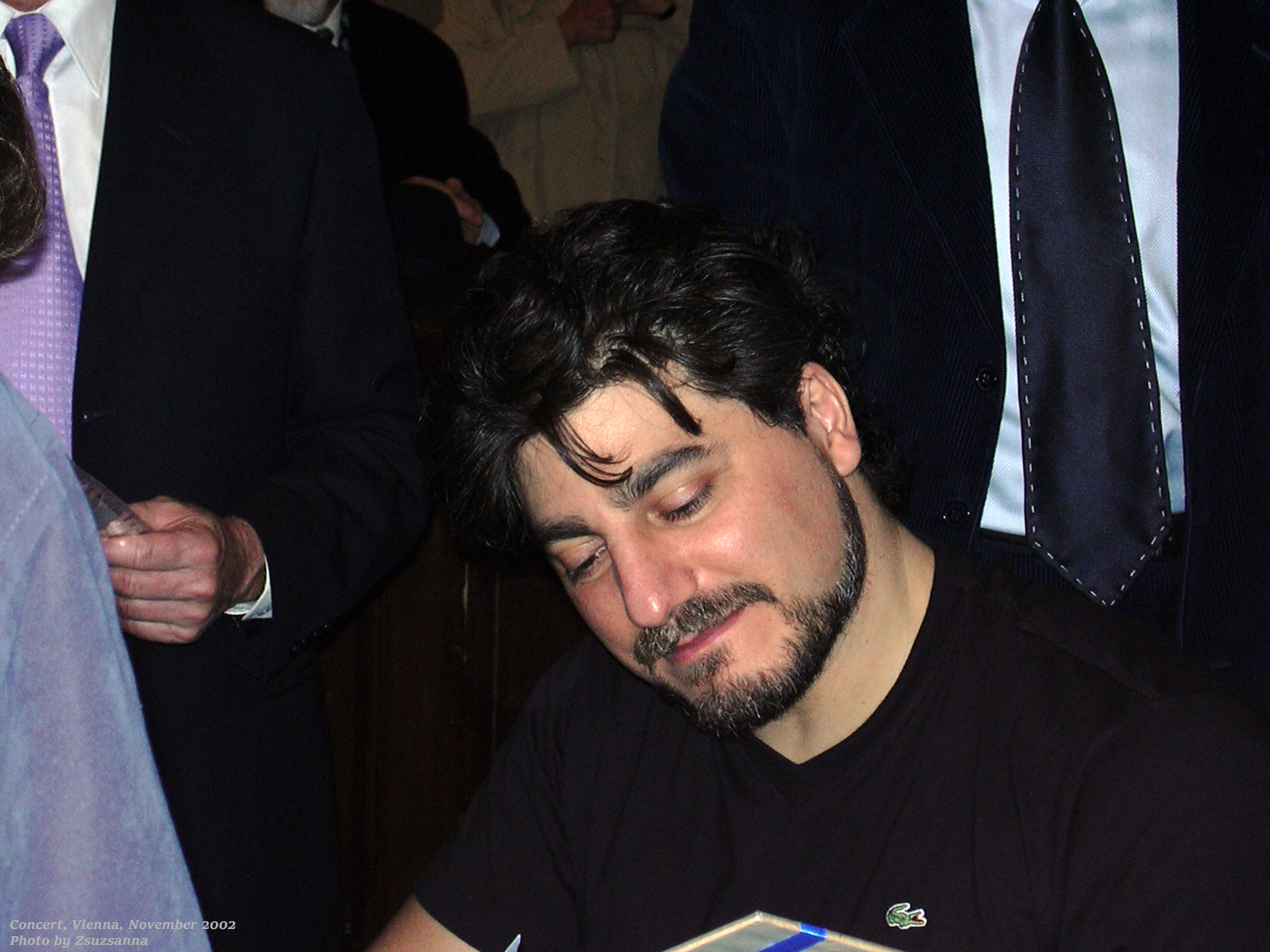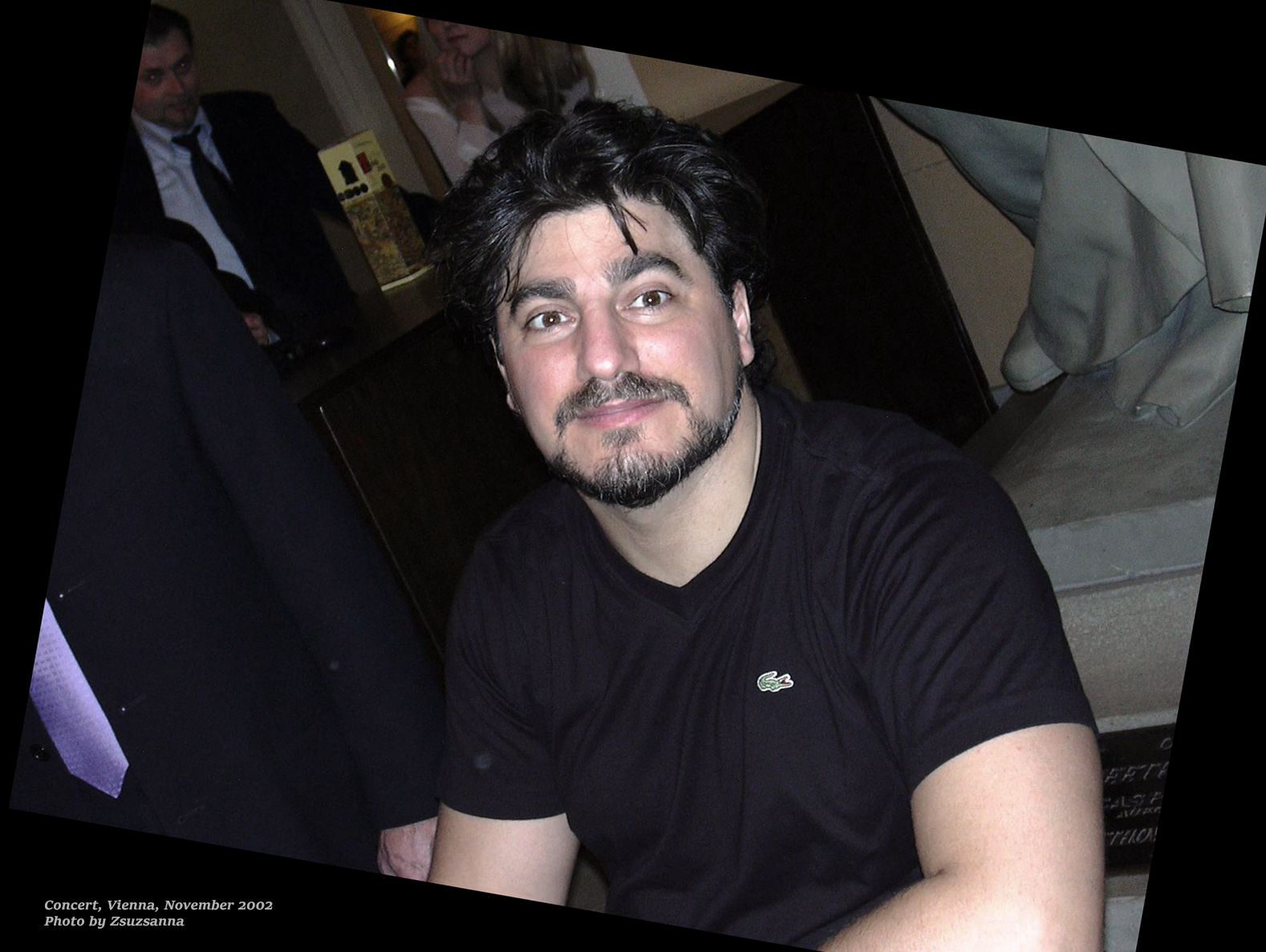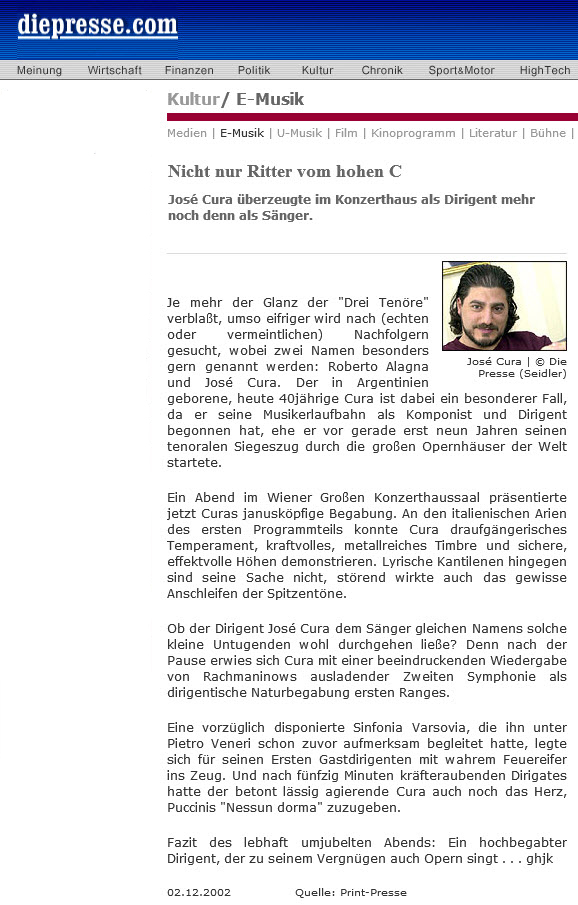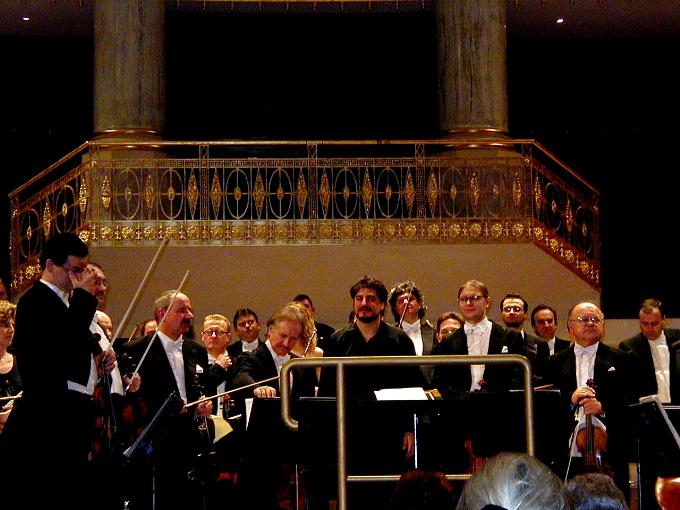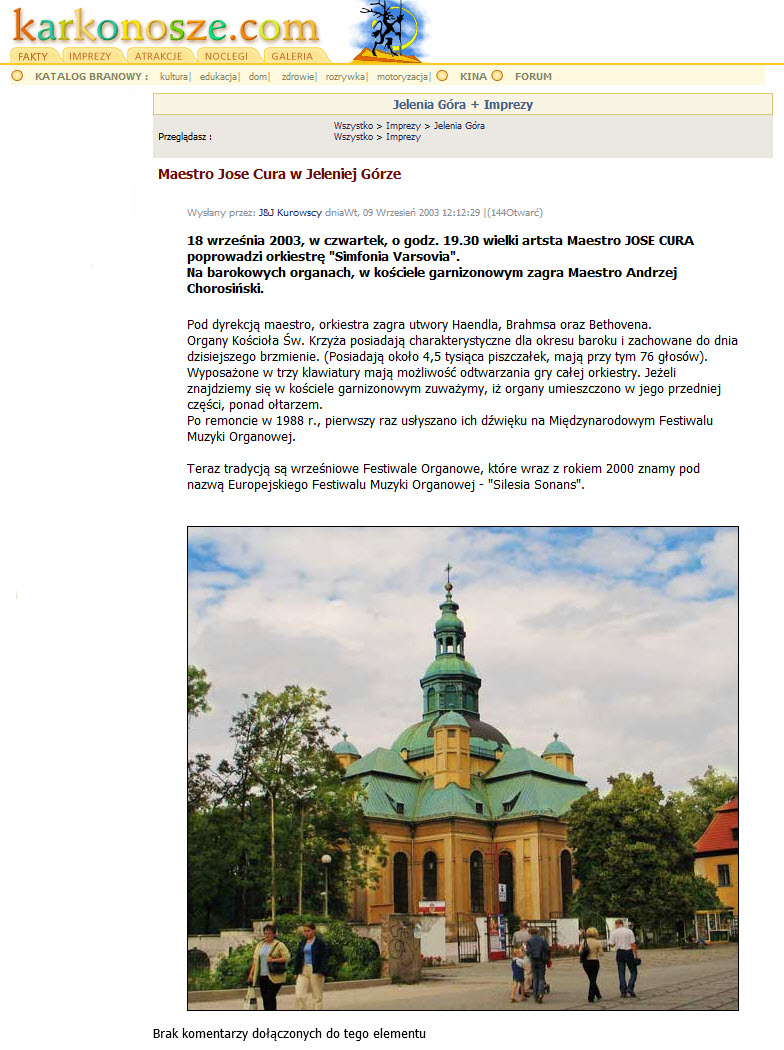José Cura and Sinfonia Varsovia
SV Performance Calendar
(Note: these are only the dates of which we are aware; there may be others…)
|
Year |
Month |
Performance Dates |
Title |
Composer |
Theater |
City |
Notes |
Country |
|
2004 |
June |
13 |
Concert: Symphonic |
Beethoven |
Zamkowy Square |
Warsaw |
9th Symphony |
Poland |
|
2004 |
July |
3 |
Concert |
Various |
Pavilhoa Atlantico |
Lisbon |
|
Portugal |
|
2003 |
September |
18 |
Concert: Symphonic |
Handel, Brahms and Beethoven |
Church of the Holy Cross |
Jelenia Gora |
Sinfonia Varsovia |
Poland |
|
2002 |
January |
13 |
Concert: Symphonic |
Grieg; Rachmaninov |
Our Lady Queen of Peace Church |
Wroclaw |
Conductor / Peer Gynt Suite 1 (Grieg); Rach#2 |
Poland |
|
2002 |
February |
20 |
Concert: Symphonic |
|
Polish Theater |
Warsaw |
Europe for Poland Concert / Conductor Televised |
Poland |
|
2002 |
June |
2, 3, 4, 6, 8, 11, 12, 13, 14, 15 |
Concert: Symphonic |
|
Various |
|
Japanese Symphonic Tour with Sinfonia Varsovia |
Japan |
|
2002 |
June |
28 |
Concert |
|
Dalhalla |
Dalhalla |
Tenor |
Sweden |
|
2002 |
June |
29 |
Concert: Symphonic |
|
Dalhalla |
Dalhalla |
Conductor |
Sweden |
|
2002 |
August |
31 |
Concert / Mixed |
|
Dąbrowski Square |
Lodz |
SV |
Poland |
|
2002 |
October |
8 |
Concert |
|
Pavilhoa Atlantico |
Lisbon |
|
Portugal |
|
2002 |
November |
24 |
Concert: Symphonic |
Beethoven |
Warsaw University |
Warsaw |
Conductor / 9th Symphony |
Poland |
|
2002 |
November |
29 |
Concert |
Arias from Aurora/ Rach 2nd Symphony |
Konzerthaus |
Vienna |
Conductor + vocals |
Austria |
|
2001 |
November |
25 |
Concert: Symphonic |
Respighi, Ravel, Kodaly, Rachmaninoff |
Warsaw Philharmonic |
Warsaw |
Conductor with Sinfonia Varsovia |
Poland |
| Concert, Warsaw: After the first collaborative performance of José Cura and Sinfonia Varsovia at the National Philharmonic the skeptics must become silent. The temperament and charisma of the Argentinean tenor, combined with the ensemble's perfection, may bring many interesting artistic results. Wprost, November 2001
Concert, Warsaw: Sinfonia Varsovia played sensationally under Cura’s baton. The homogenous strains of the entire assemble was combined with the clarity of individual instruments' play. The polished solos, especially of the clarinet and oboe deserved the highest praise. Trybuna, November 2001
Concert, Warsaw: Yesterday the Sinfonia Varsovia inaugurated its co-operation with José Cura, the famous Argentinean tenor, in brilliant style. Gazeta Wyborcza, 26 November 2001
Concert, Sinfonia Varsovia: It would be difficult not to notice the excellent rapport that José Cura has with the Polish orchestra. Under his baton the instrumentalists play freely, there is this wonderful stress-free atmosphere. Slowo Polskie, January 2002
Concert, Sinfonia Varsovia: José Cura’s concert is no doubt going to go down as one of the most important musical events in this region. Wyborcza Gazeta, January 2002
Concert, Vienna: The evening at the Great Hall of the Vienna Konzerthaus showed Cura’s Janus-faced talents. After the intermission, Cura proved his first class, innate (conducting) abilities with a breathtaking interpretation of Rachmaninov's vigorous ‘Symphony No. 2.’ To summarize this enthusiastically received evening: a highly talented conductor who also sings opera for his own pleasure. Die Press, December 2002
Concert, Vienna: [Cura] proved to be a meticulous interpreter of Rachmaninov’s ‘Second Symphony.’ Without airs and graces, with sweeping gestures and precise entries he sketched an electrifying body of sound, in which each movement was followed by frantic applause. Kronen Zeitung, December 2002
Concert, Vienna: José Cura had already led the Sinfonia Varsovia in a well-paced overture of Verdi’s ‘I Vespri Siciliani’ and the prelude of Act II of Giordano’s ‘Siberia’ in the first part, but after the interval he provided the true surprise of the evening: he conducted Rachmaninov’s ‘Second Symphony’ very well, letting the music flow smoothly, phrasing beautifully. This performance was a highly professional achievement which made it clear why the Sinfonia Varsovia has named him principal guest conductor (after all, no less than Yehudi Menuhin was his predecessor). A performance which surpassed even CD versions under Previn or Janssons […] Der Neue Merker, January 2003
Concert, Poland: In describing the concert with José Cura, one cannot ignore the whole non-musical layer–the theater created around the music by the Argentinean. On one hand he draws attention to himself with his very presence and his every gesture. On the other hand, he cares for the orchestra all the time, showing with every motion that they are the most important element. Cura’s concert is no doubt going to go down in as one of the most important musical events in this region, in this season. Wyborcza Gazeta, January 2002
Concert, Sweden: A tenor who can conduct: José Cura together with the Sinfonia Varsovia presented classical music at its best. Cura’s work as a conductor was brilliant—he had the Sinfonia Varsovia eating out of his hand. The orchestra started off with Grieg's 'Peer Gynt Suite No. 1.’ Rachmaninov's ‘Second Symphony' made up the second part of the concert. It was a joy to see José Cura conducting this piece. The baton was abandoned and instead, he conducted with his whole body. With fingers and big sweeping arm movements, he danced with the different instruments. Again the delighted audience gave standing ovations. DD, July 2002
Concert, Sweden: As a tenor, José Cura has a feeling and love for the climax of the music. This he brings to the conductor's podium. He begins slow music very slowly, soft music is very soft. Cura underlines the rubati and changes in tempo. He has a sense of drama. When it is already heavy, he pours on a little more. This worked remarkably well with the orchestral pieces during the concert on Saturday evening. In the waltz in "Anitra’s dans," Sinfonia Varsovia presented itself as an exquisite symphony orchestra—exact with details and radiance. The highlight of the evening was undoubtedly Cura’s moving interpretation of Rachmaninov's powerful ‘Second Symphony.’ The strong adagio was a knock-out and the 1200-strong audience responded with a long standing ovation. Falun Kuriren, 29 June 2002
|
Bydgoszcz - January 2002
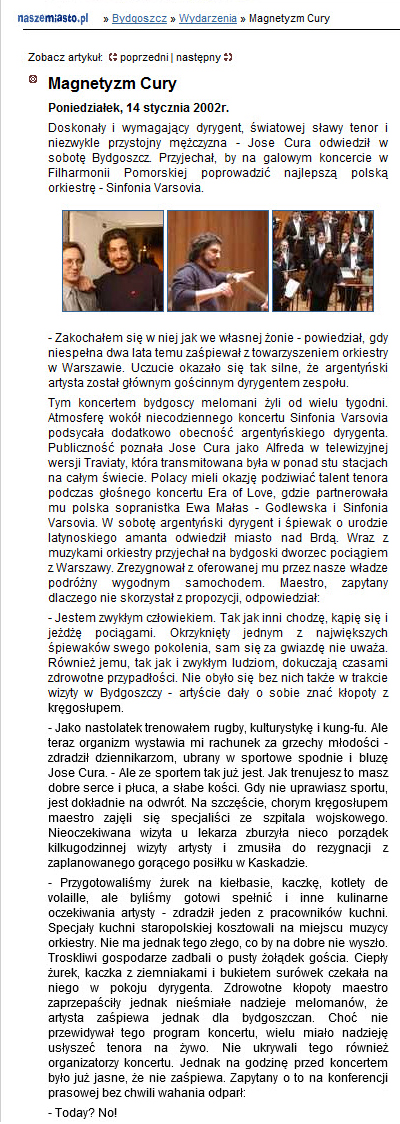
|
|
|
|
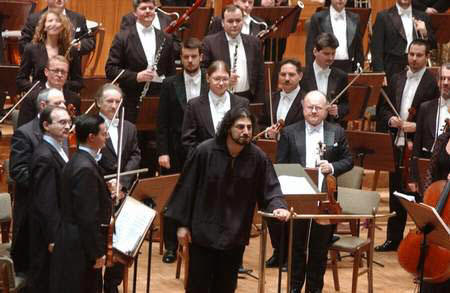 |
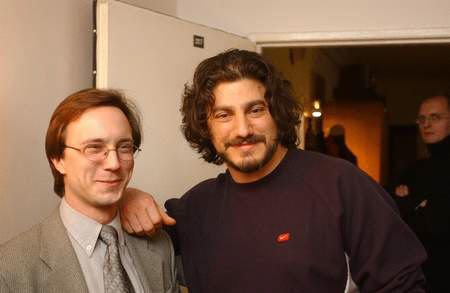 |
|
|
|
Wroclaw - January 2002
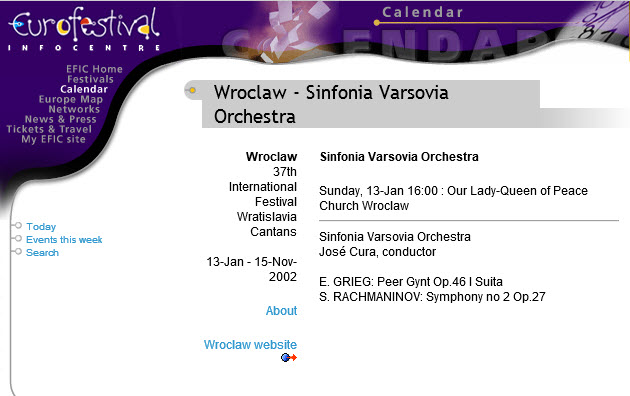 |
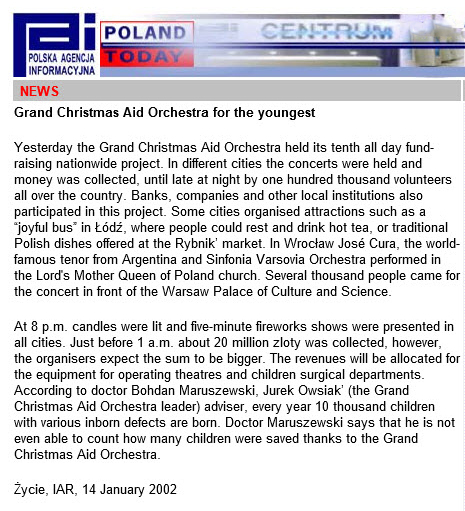 |
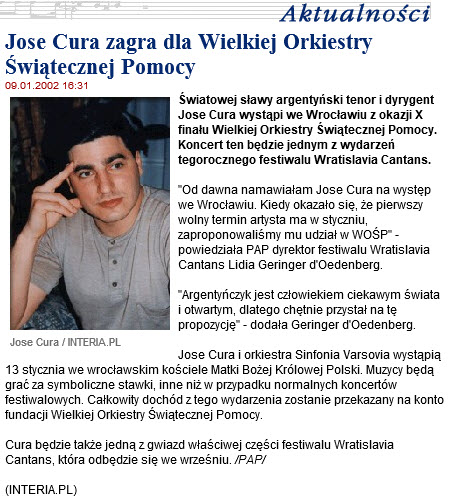 |
|
|
|
|
|
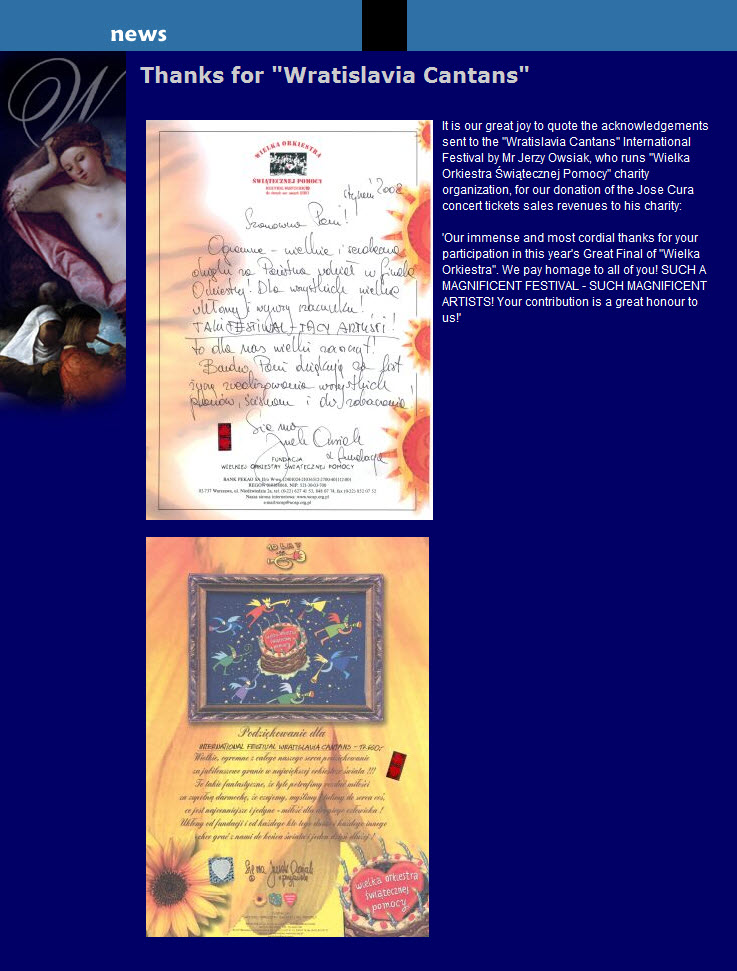
|
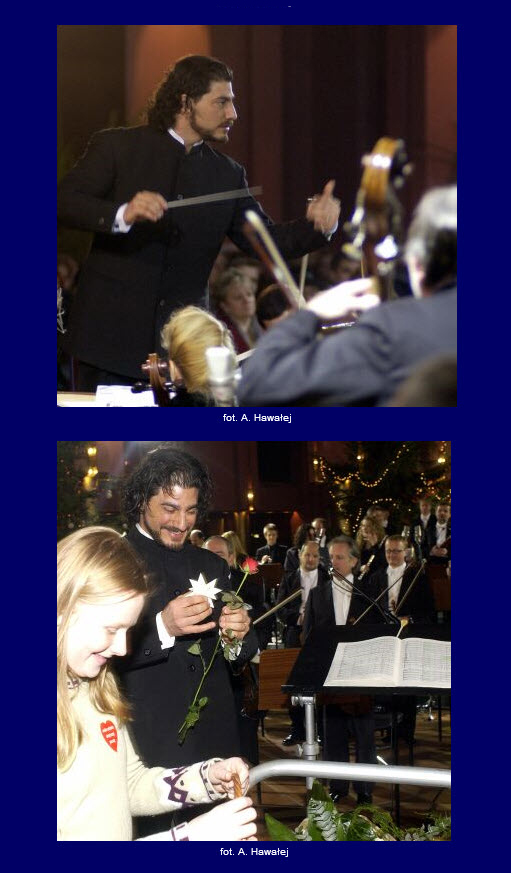 |
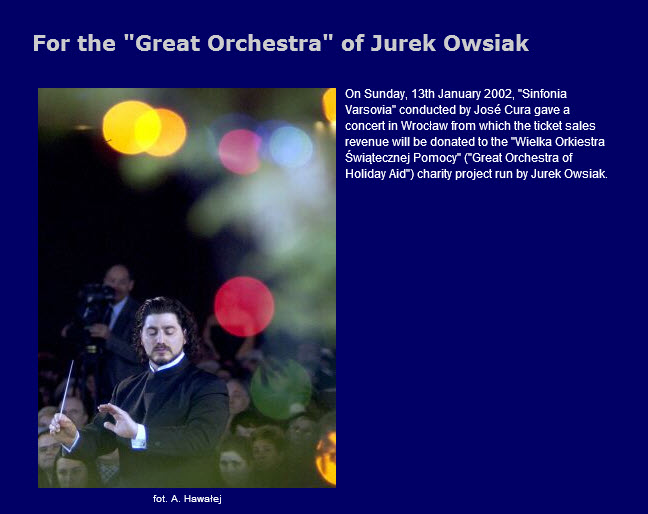 |
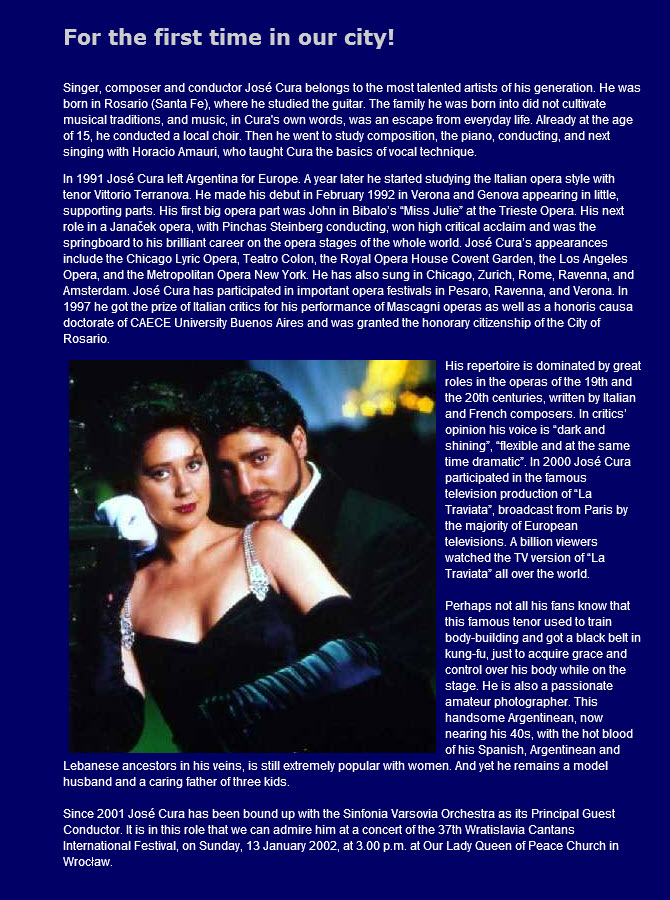 |
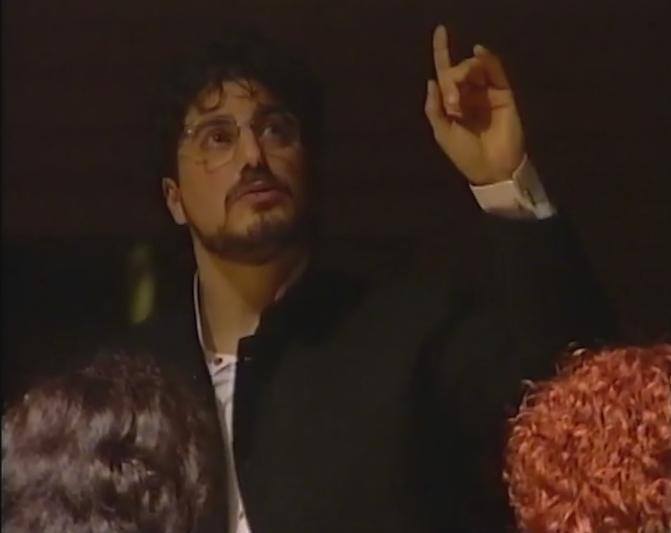 |
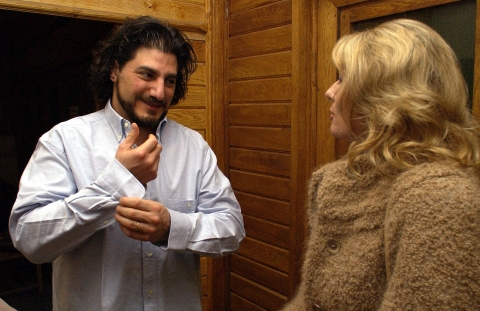 |
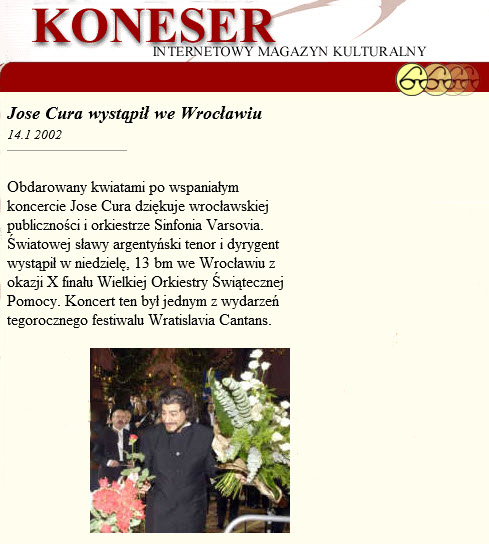 |
|
Poland for Europe - February 2002
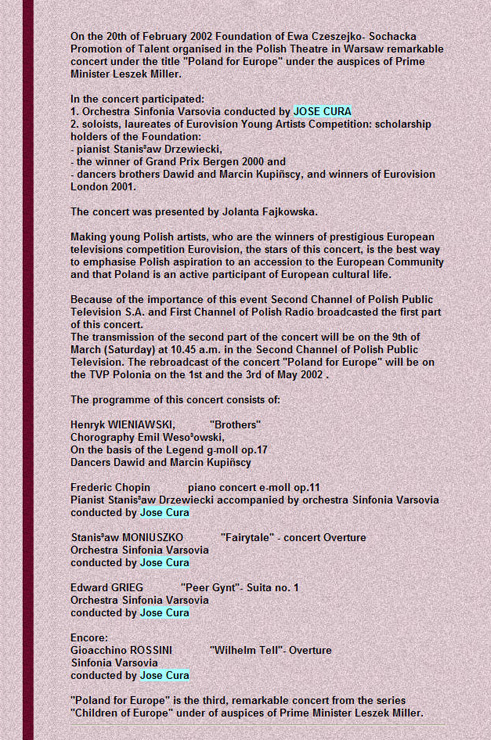 |
||
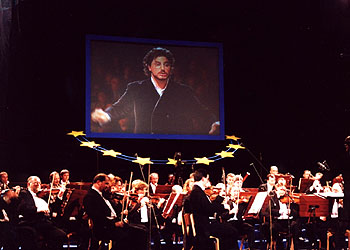 |
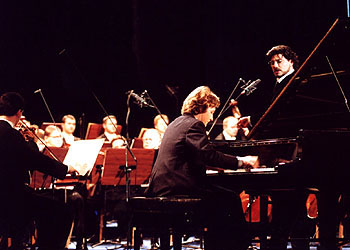 |
|
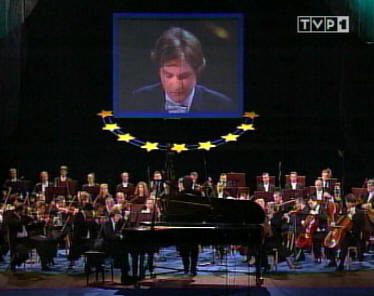 |
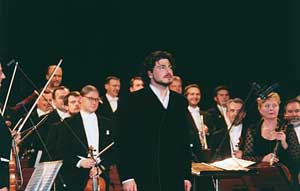 |
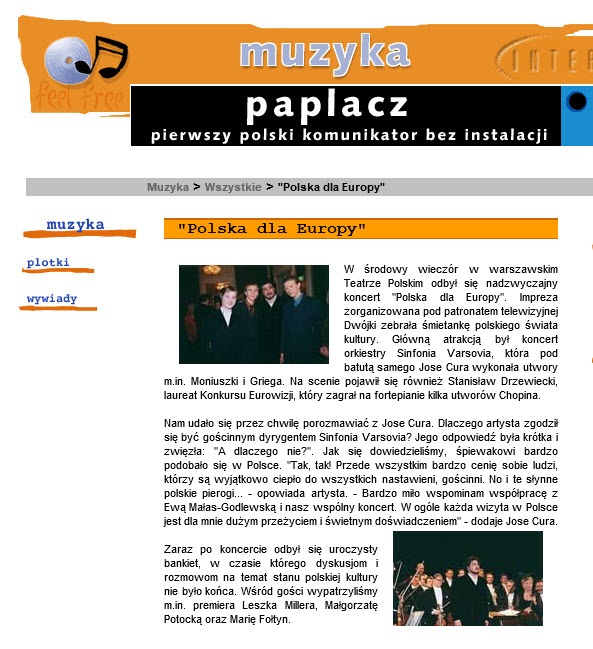 |
|
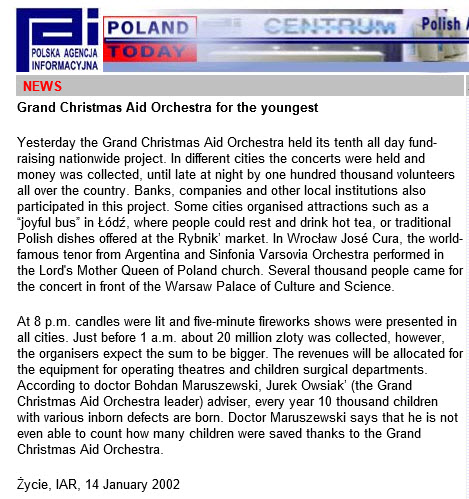
|
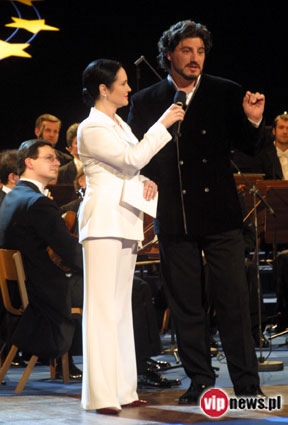 |
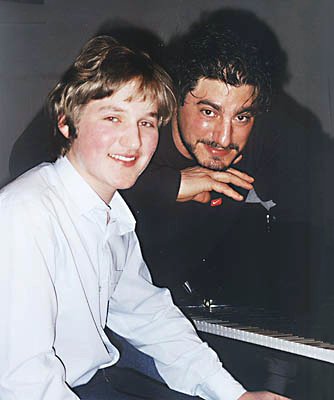 |
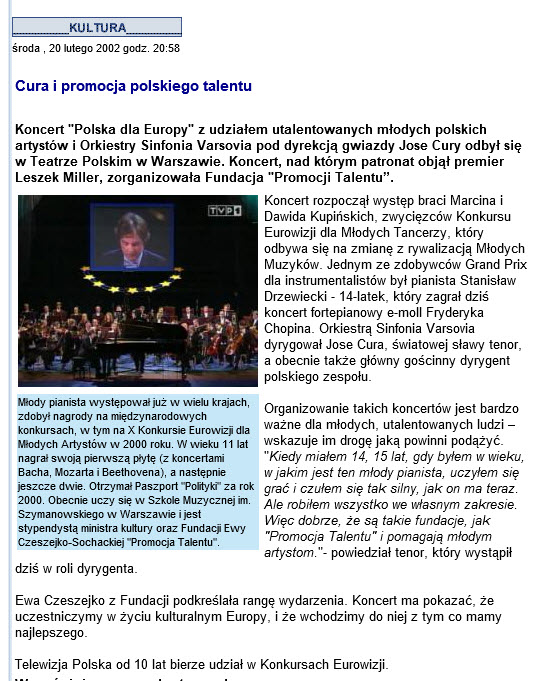 |
|
|
|
Dalhalla - June 2002
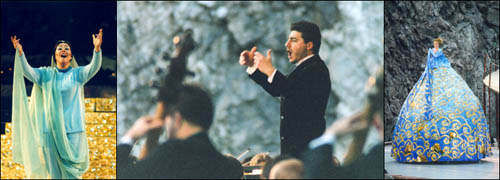
|
|
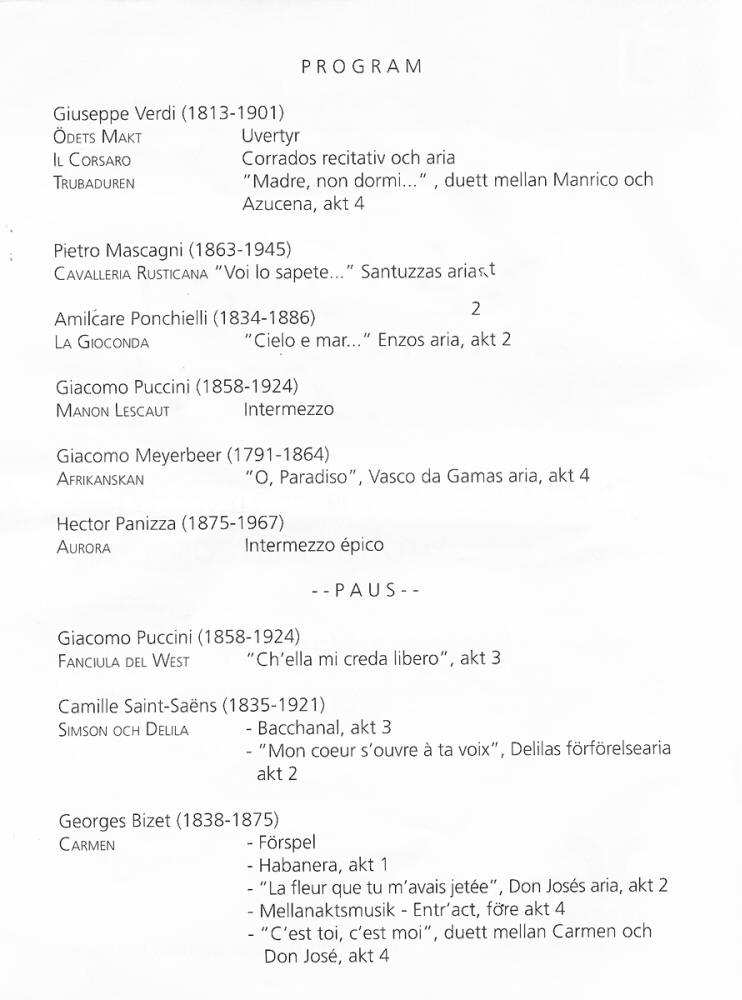 |
|
|
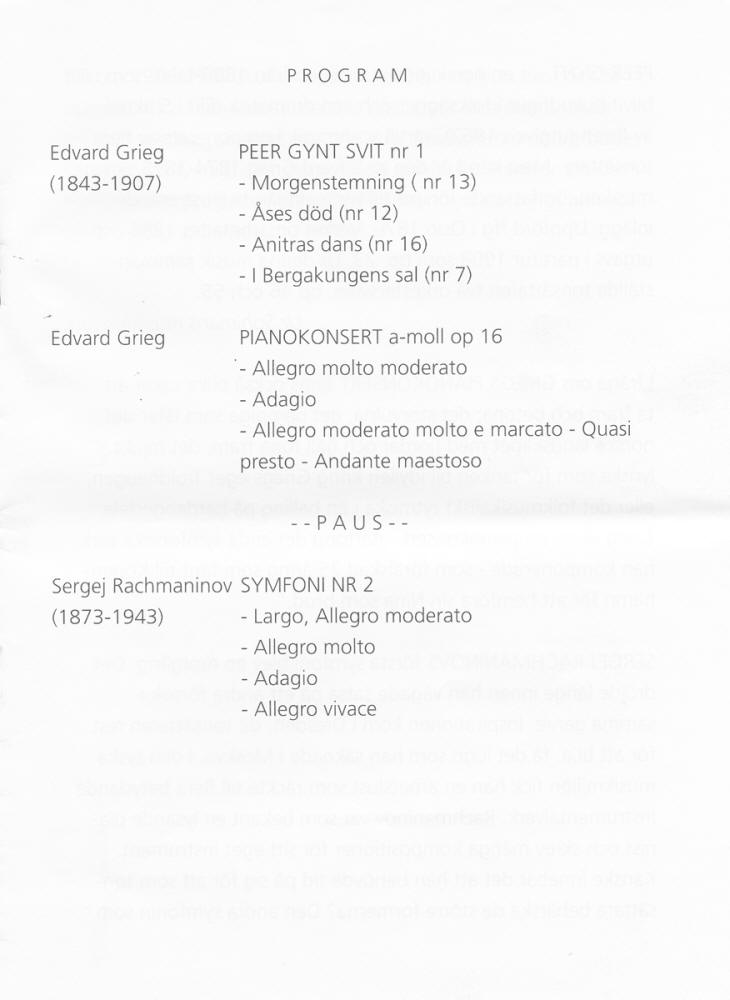 |
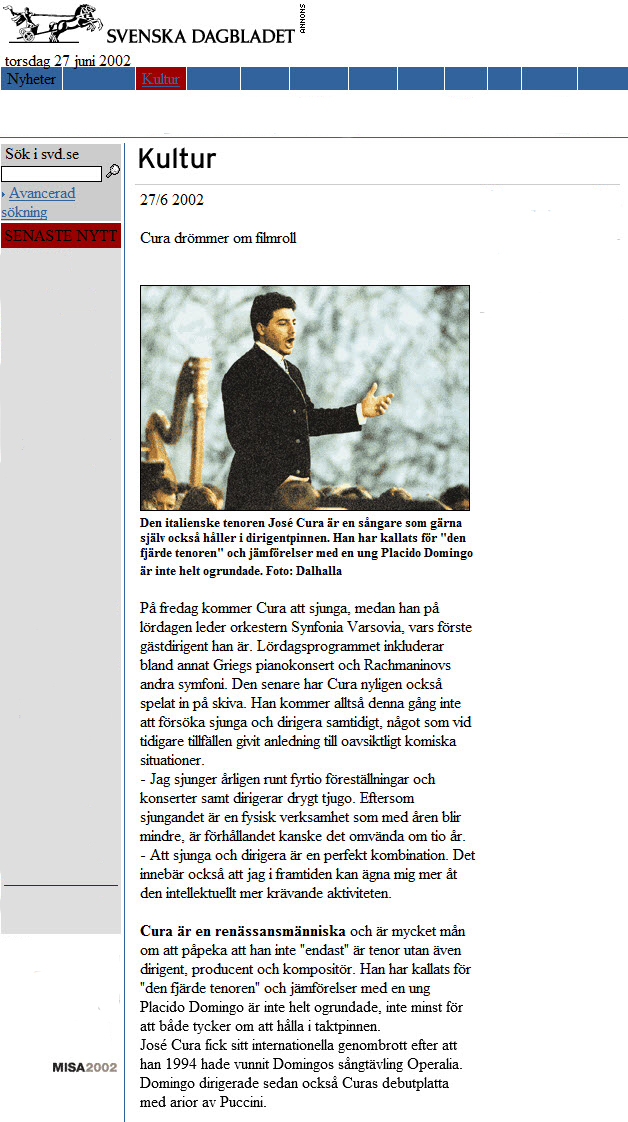 |
|
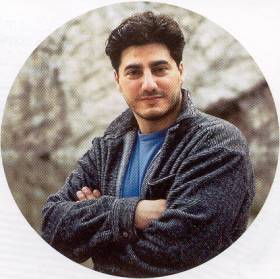 |
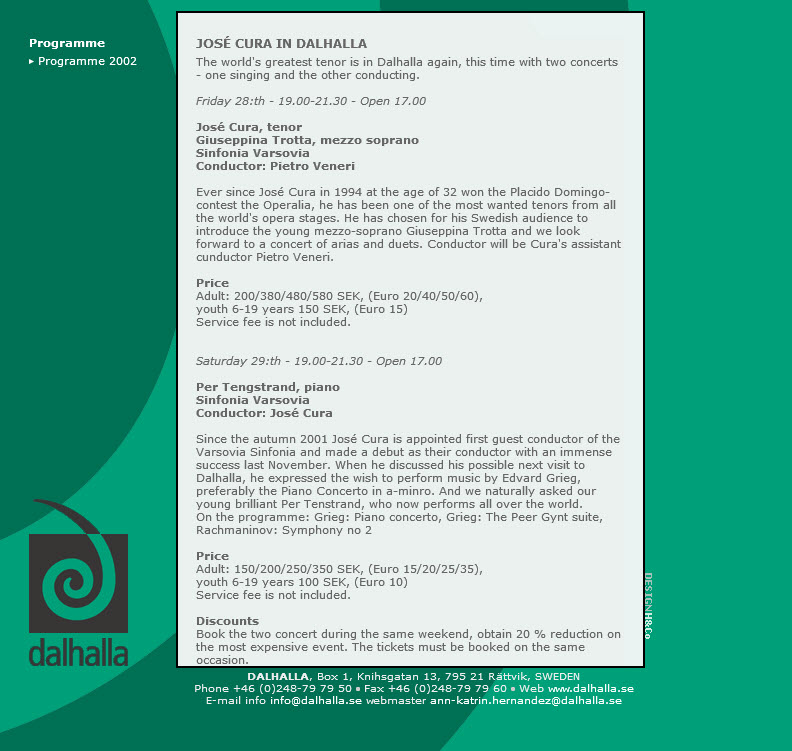 |
.jpg) |
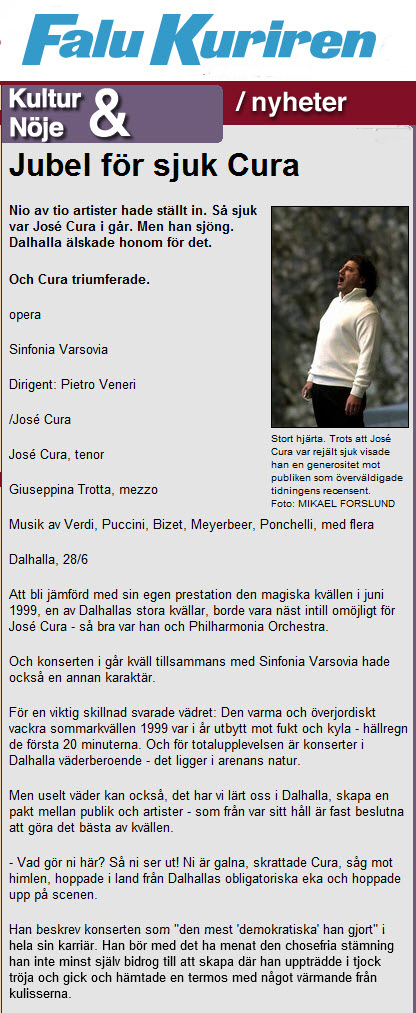 |
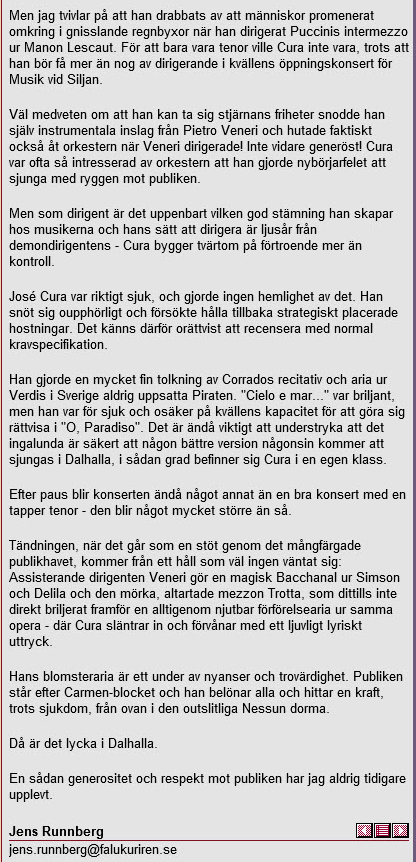 |
|
Cheers for Sick Cura Falun Kuriren Jens Runnberg 29 June 2002 Nine out of ten artists would have cancelled. José Cura was that ill yesterday. But he sang. Dalhalla loved him for it. And Cura triumphed. It's nearly impossible to compare his achievement on that magical night in June 1999 - José Cura and the London Philharmonic Orchestra were that good. The concert last night with the Sinfonia Varsovia had a different character. The weather made a big difference: the warm and beautiful summer evening of 1999 was this time damp and cold - pouring rain for the first 20 minutes. And for the total experience, the concerts in Dalhalla depend on the weather - it's the nature of the place. However, bad weather can, as we have learned in Dalhalla, create a pact between the audience and the artists - each determined to make the best of the evening. - What are you doing here? Just look at you! You are crazy, Cura laughed, looking up at the sky and jumping ashore from Dalhalla's boat and onto the stage. He described the concert as "the most democratic one" he'd made during his career. He must have meant the easy-going atmosphere that he himself contributed to, walking around in a thick sweater and getting a thermos from backstage. But I doubt he was disturbed by people walking around in their squeaking raincoats while he was conducting Puccini's intermezzo from Manon Lescaut. Because Cura didn't want to be just the tenor, even though he would get more than enough conducting on the next evening. Well aware of the liberties possible for a star, he stole some instrumental passages from Pietro Veneri and actually told the orchestra off while Veneri was conducting. Not very generous! Several times, Cura was so interested in the orchestra that he made the beginner's mistake of singing with his back to the audience. But as a conductor, it is clear that he creates a good atmosphere among the musicians and his way of conducting is light years away from the demon conductors. Cura builds on trust rather than control. José Cura was really ill and made no secret of it. He was constantly blowing his nose and tried to hold back the strategically placed coughing. In view of this, it feels unfair to review the concert according to ordinary standards. He sang a very fine interpretation of Corrado's recitative and aria from Verdi's Corsaro (never produced in Sweden). "Cielo e mar" was brilliant but he was too ill and insecure about his vocal capacity for the evening to do justice to "O Paradiso". Nevertheless, it is important to point out that it is doubtful if a finer version will ever be heard in Dalhalla. Cura is really in a class of his own. After the intermission, the concert became more than just a good concert with a brave tenor - it was something much larger than that. The spark which flowed through the multi-coloured sea of people came from an unexpected source: the assistant conductor Veneri conducted a magical Bacchanal from Samson et Dalila and the dark alto-like mezzo Trotta delivered a wonderfully enjoyable seductive aria from that opera - with Cura sauntering on stage and surprising with a sweetly lyrical expression. His flower aria was a wonder of nuances and credibility. The audience gave a standing ovation after the Carmen medley and he rewarded them. In spite of his illness, he found the strength for “Nessun dorma.” Everyone is happy in Dalhalla. I have never before witnessed such generosity and respect towards an audience. Careless of Tengstrand As a tenor, José Cura has a feeling and love for the climax of the music. This he brings to the conductor's podium. He begins slow music very slowly, soft music is very soft. Cura underlines the rubati and changes in tempo. He has a sense of drama. When it is already heavy, he pours on a little more oil. This worked remarkably well with the orchestral pieces during the concert on Saturday evening. Some of the works by Grieg came dangerously close to turning into elevator music but the dramatic interpretations by Cura nevertheless made it sound new. In the waltz in "Anitras dans", Sinfonia Varsovia really presented itself as an exquisite symphony orchestra - exact with details and radiance. The pianist Per Tengstrand did not live up to expectations in Grieg's piano concerto. Perhaps he was confused by Cura's radically slow choice of tempo, possibly by the size of the venue, because on and off Tengstrand seemed to be taking part in the competition "How hard can a pianist really hit the keys?" That it is quite possible to play as usual in Dalhalla Jablonski proved last year. Tengstrand made an almost wild presentation which in the first part contained two minor but embarrassing mistakes. He was applauded and brought back twice. After careless playing, he surprised with a virtuoso encore - Grieg's "Trolltǻg" (which saves his general review to OK). The highlight of the evening was undoubtedly Cura's moving interpretation of Rachmaninov's powerful second symphony. Not the least the strong adagio was a knock-out and the 1200-strong audience responded with a long standing ovation. During the encore, the overture to La Forza del Destino, the orchestra demonstrated their overwhelming joy in playing.
|
|
|
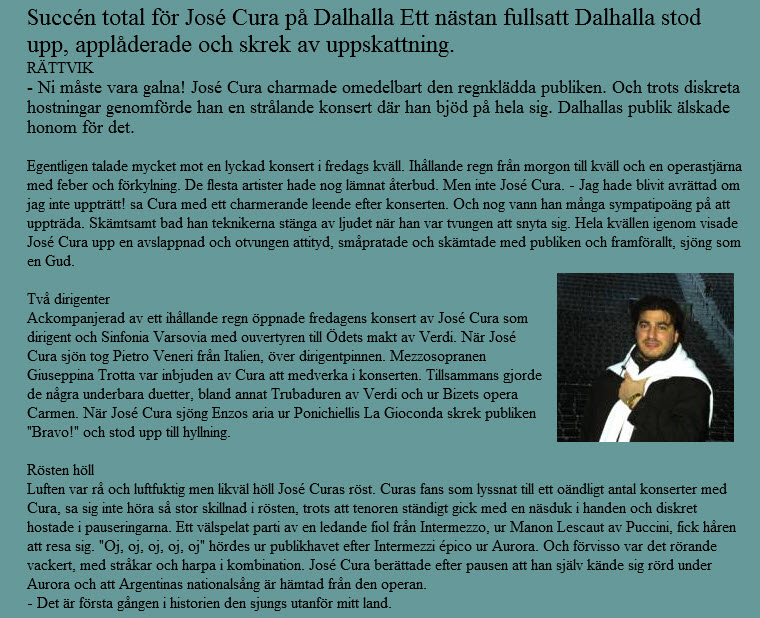 |
.jpg)
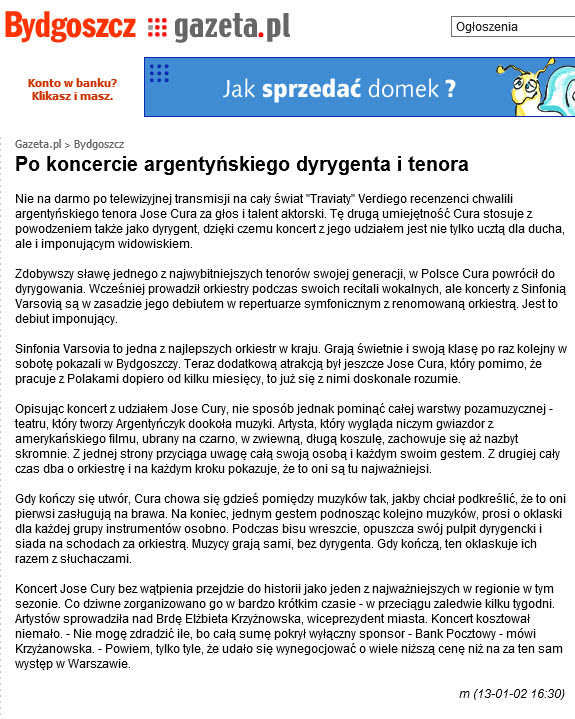
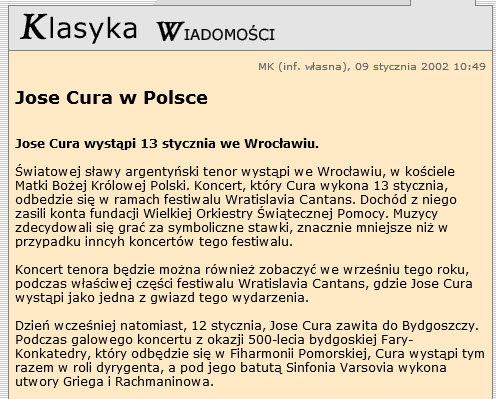
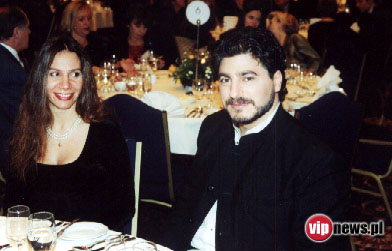
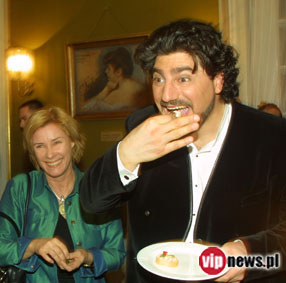
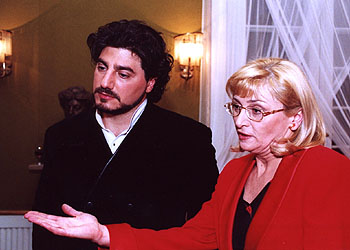
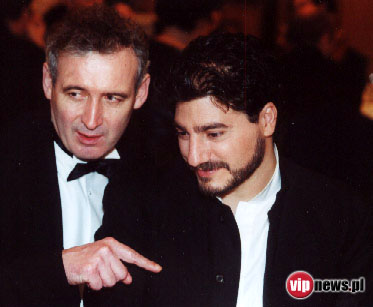
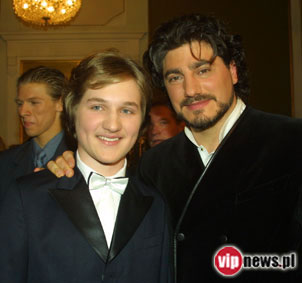
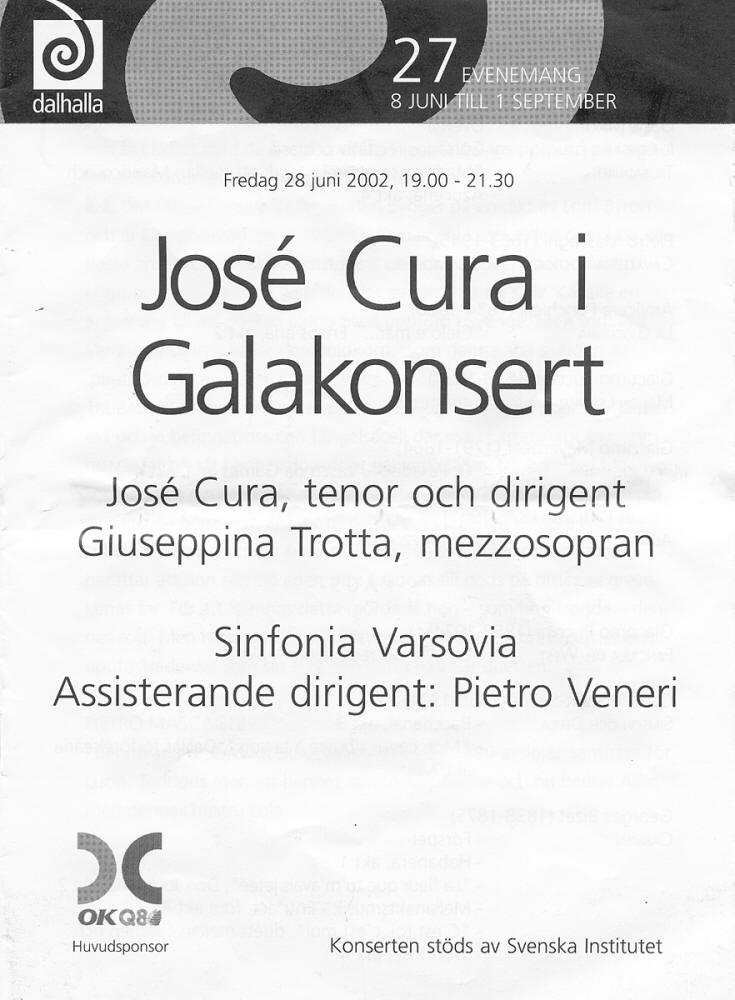
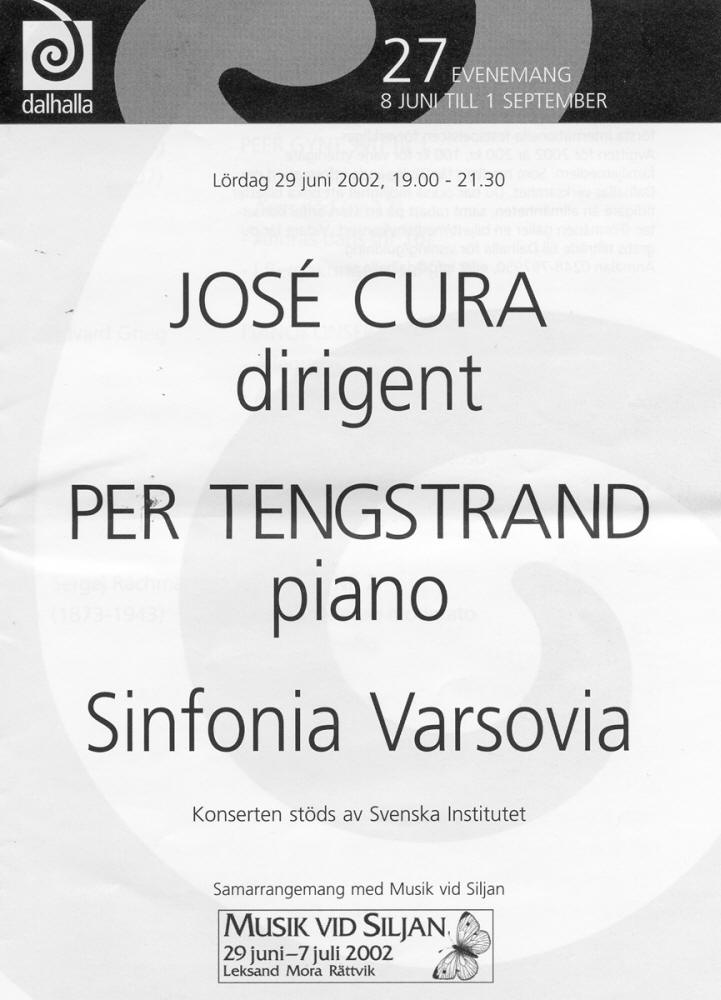
.jpg)
.jpg)
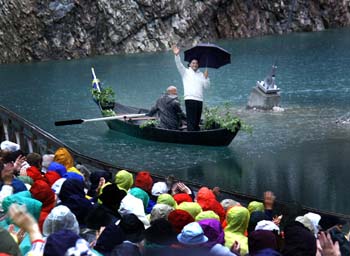
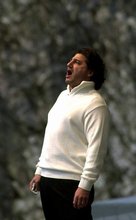
.jpg)
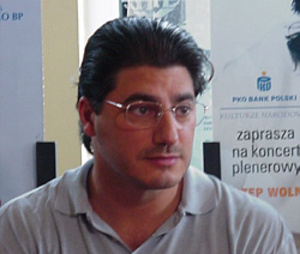
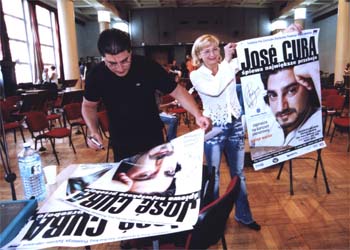
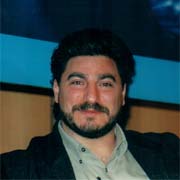
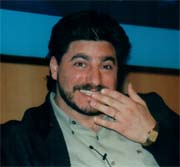
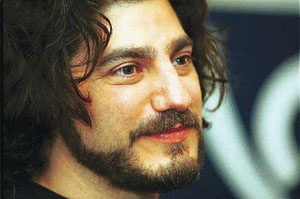
.jpg)
.jpg)
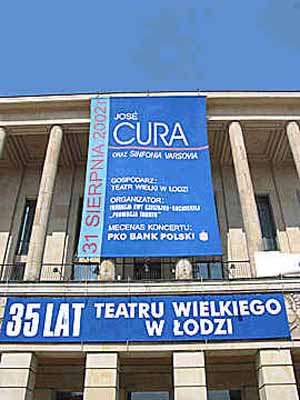
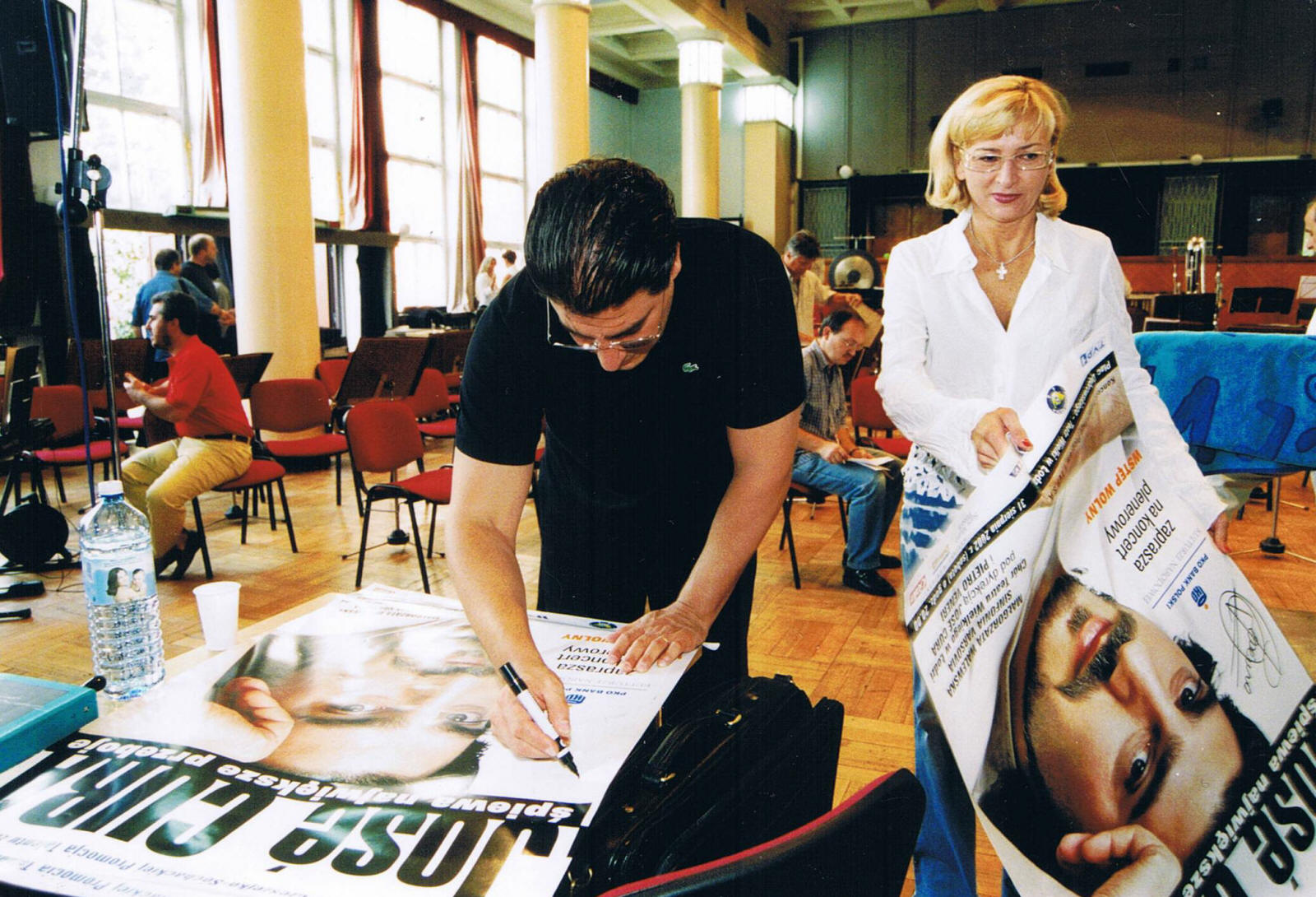
.jpg)
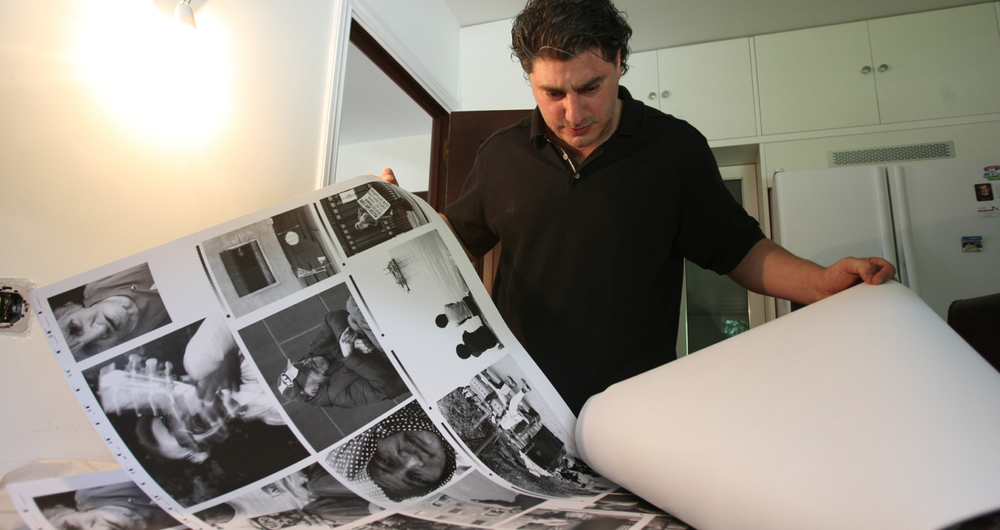
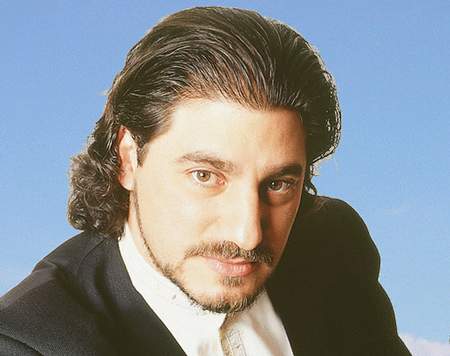
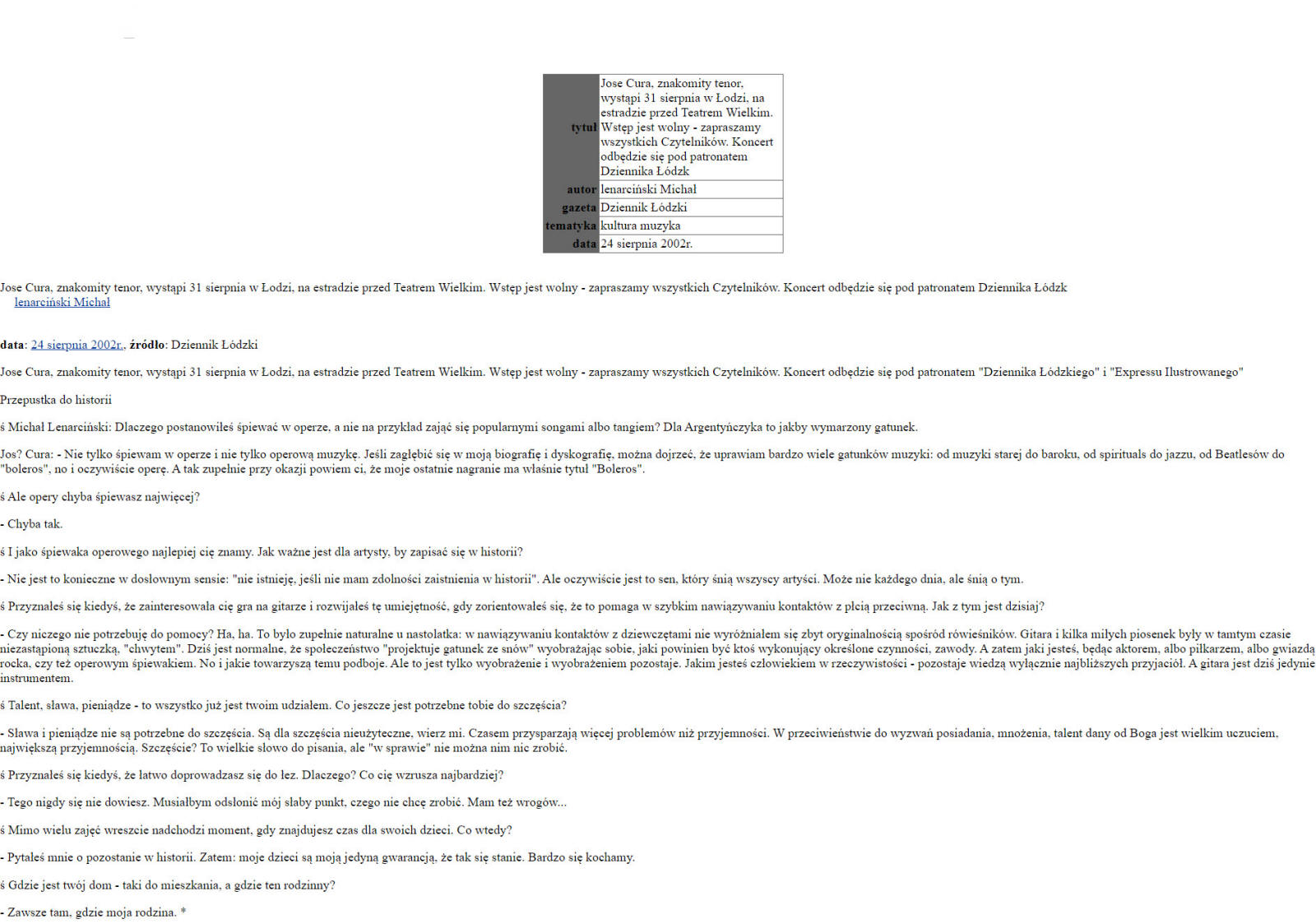
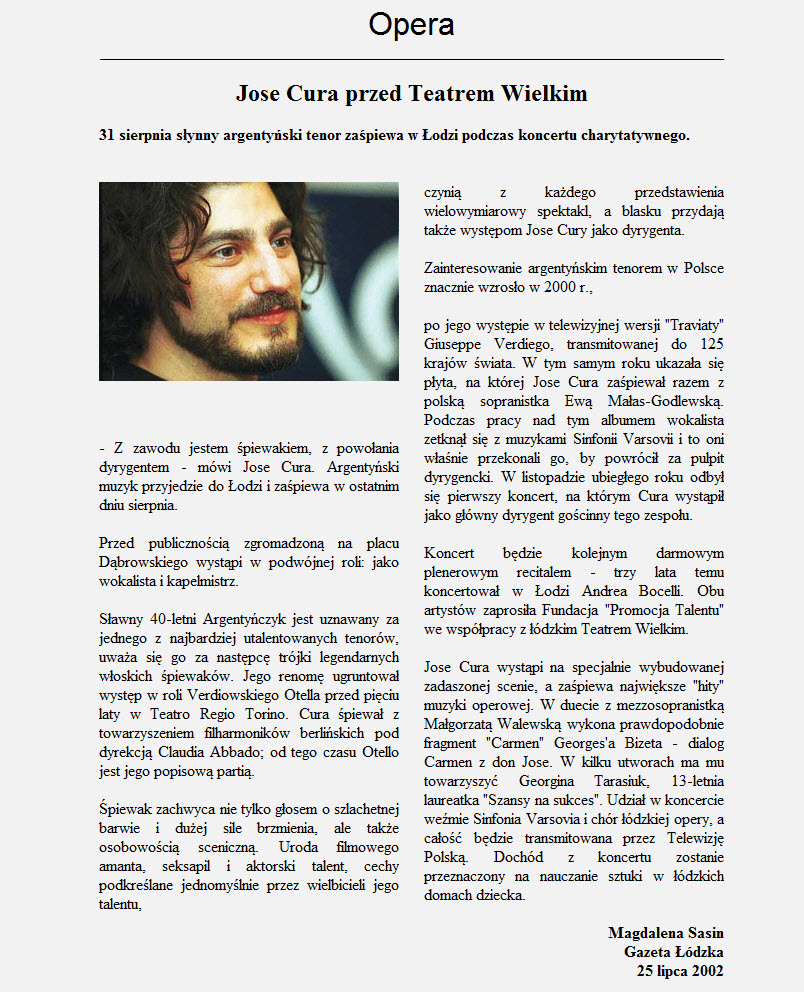
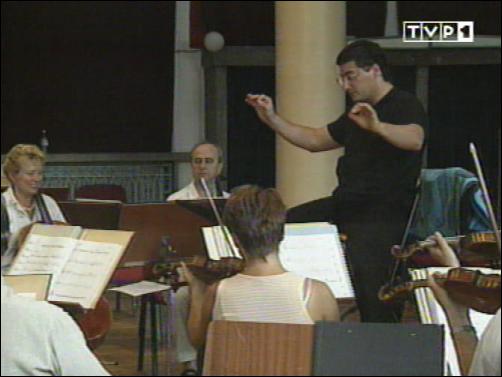
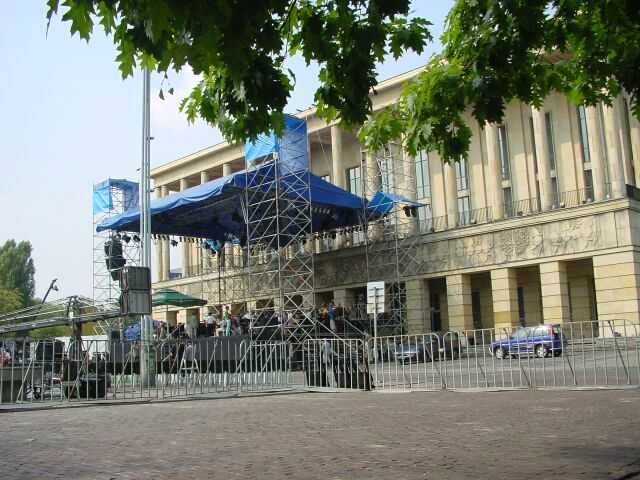
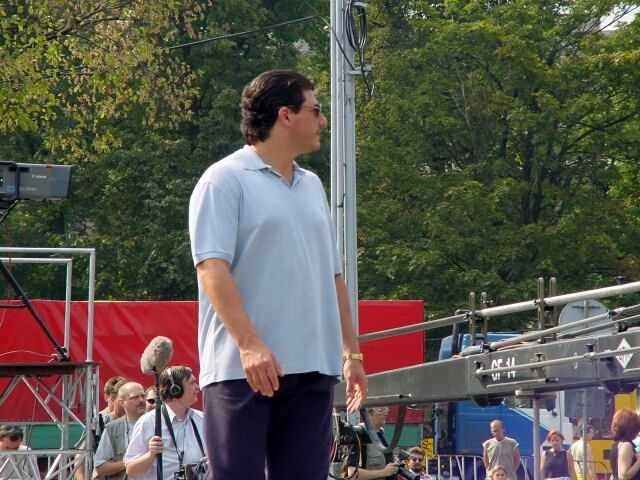
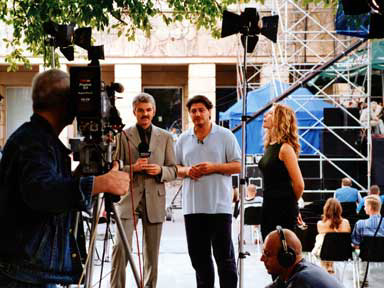
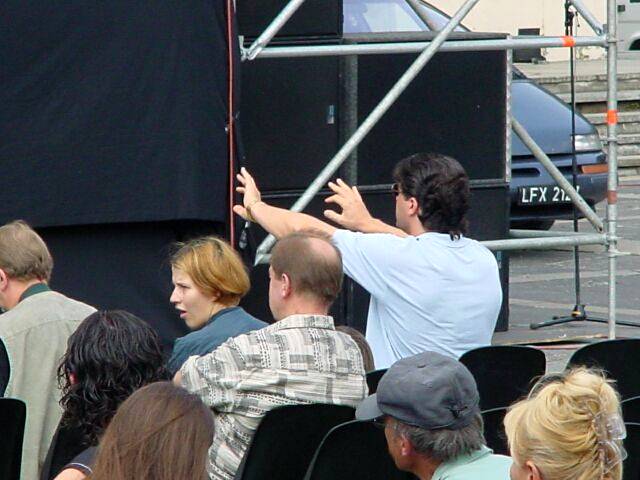
.jpg)
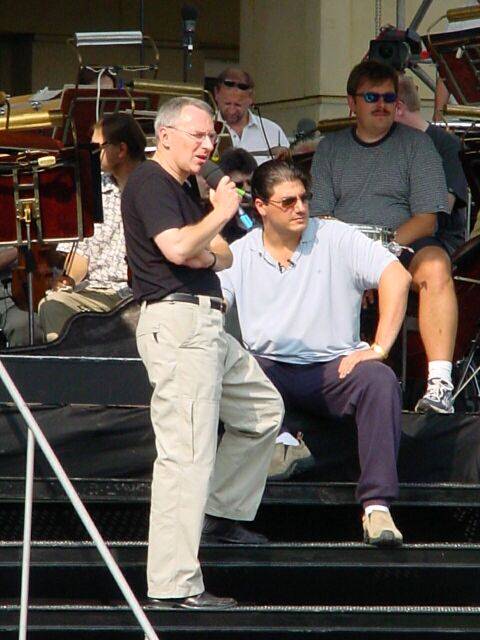
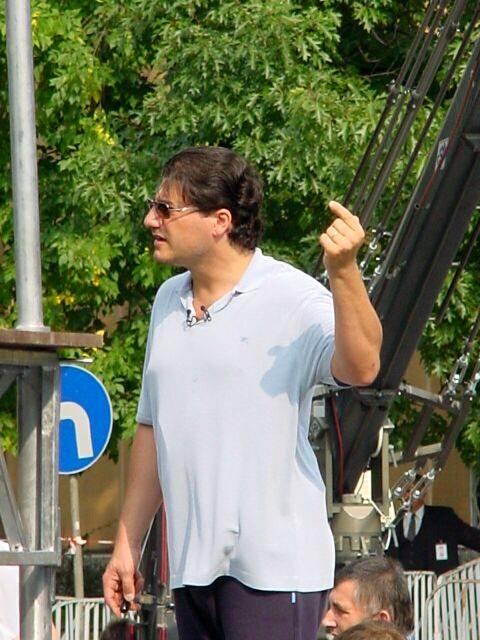
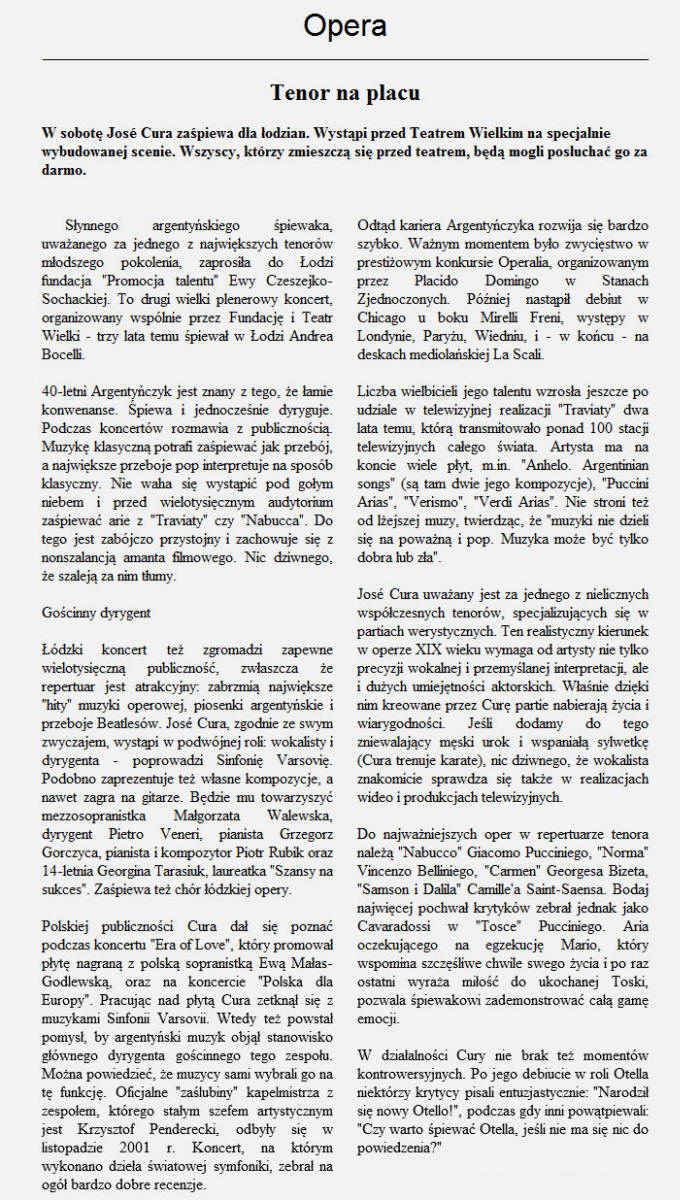
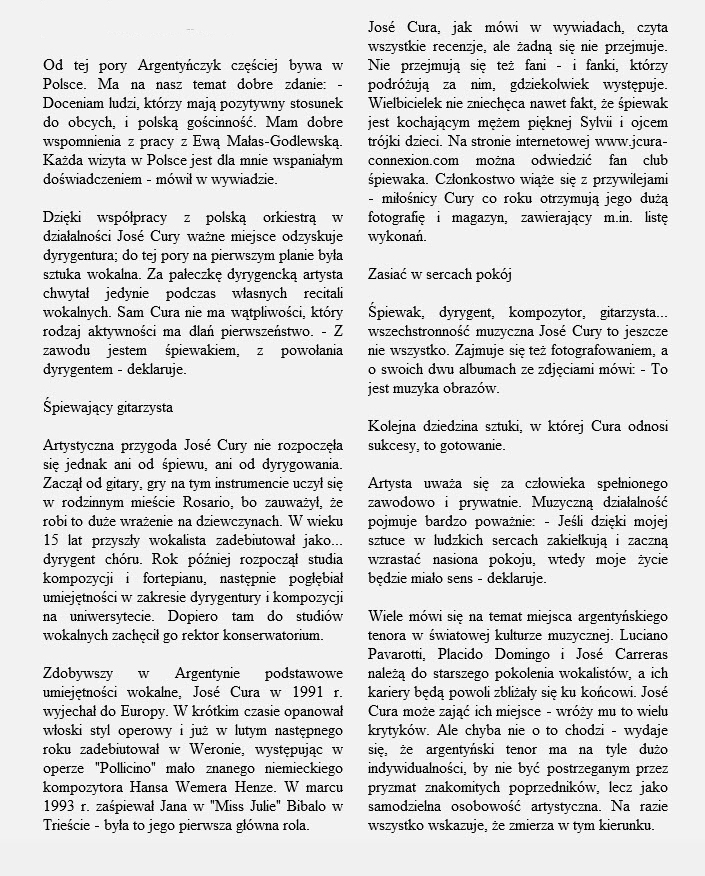
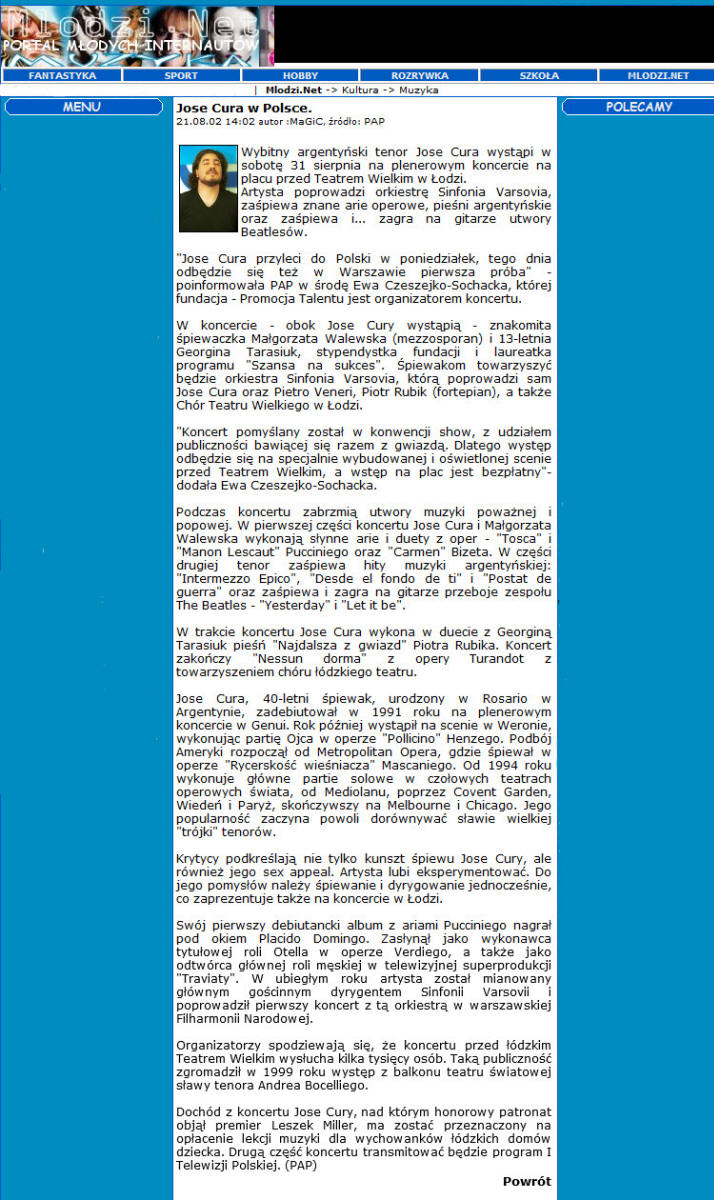
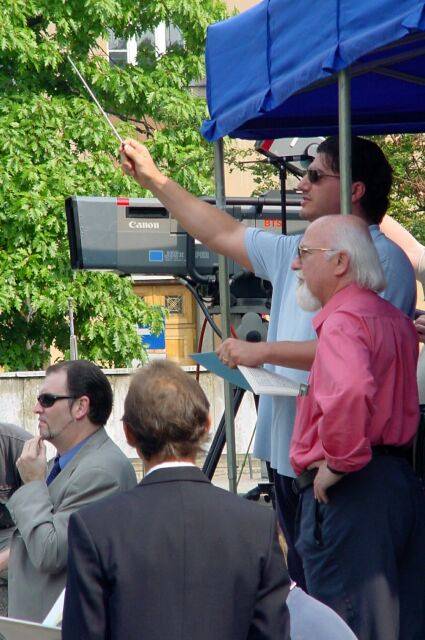
.jpg)
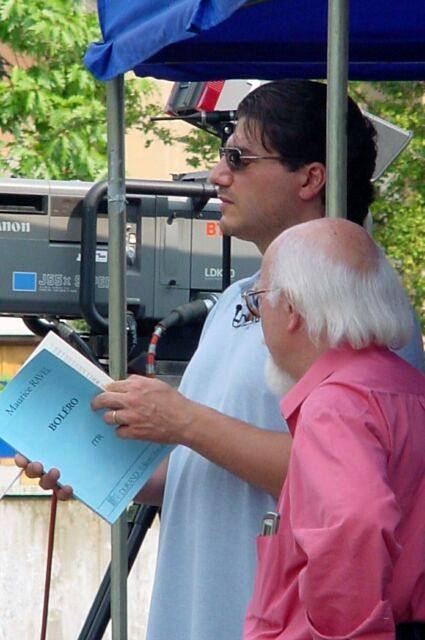
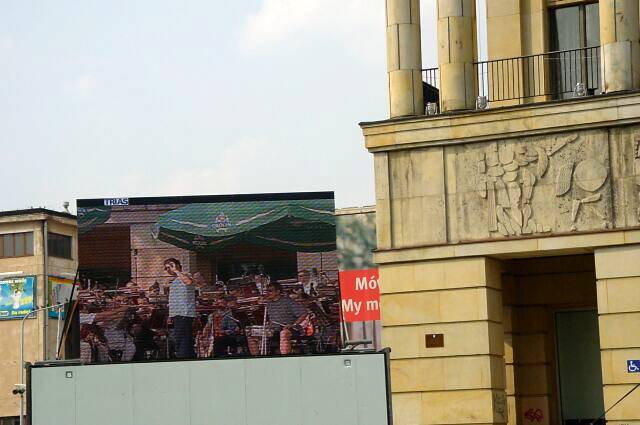
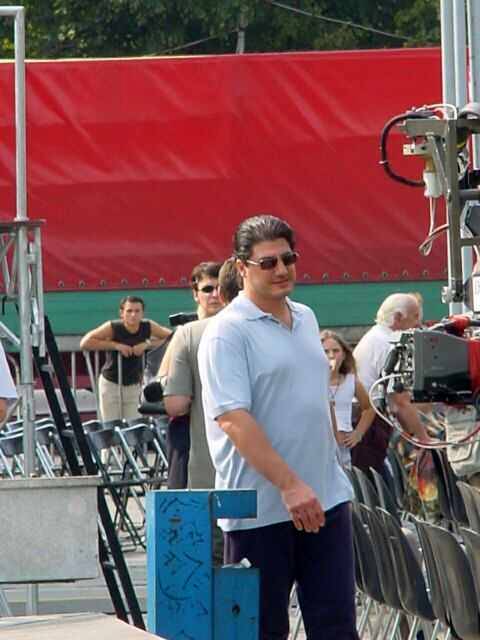
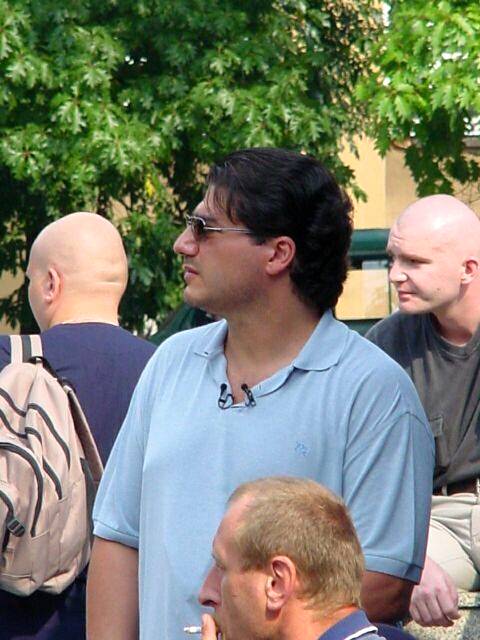
%20(2).jpg)
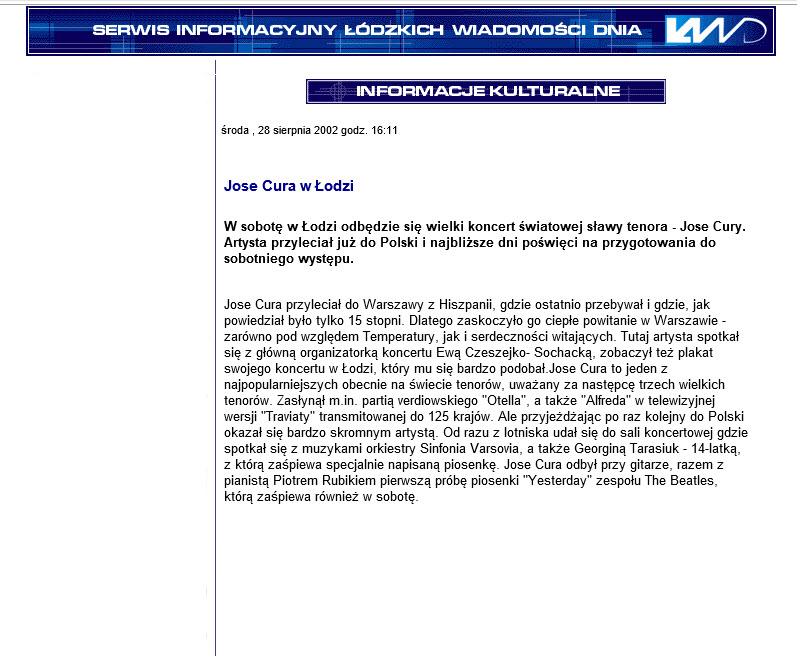
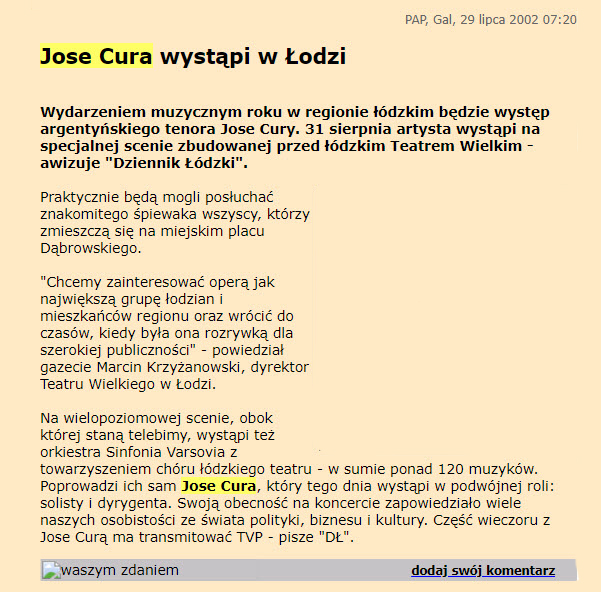
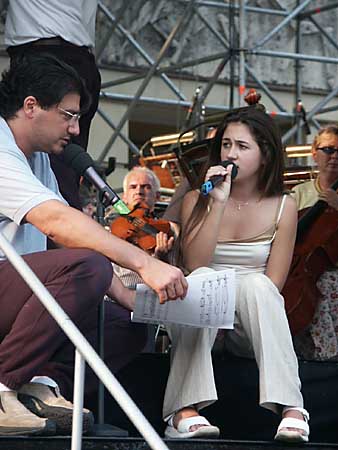
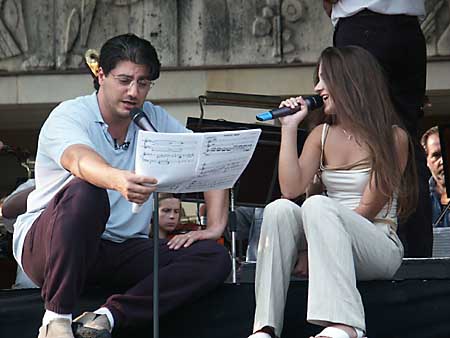
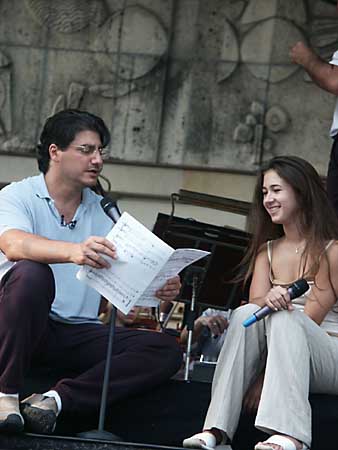
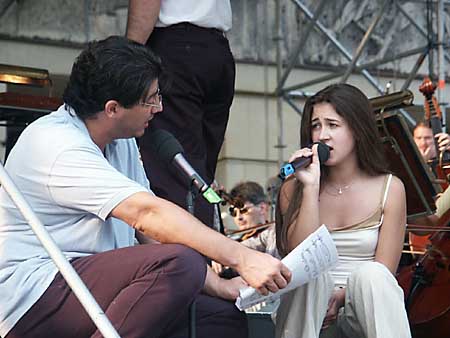
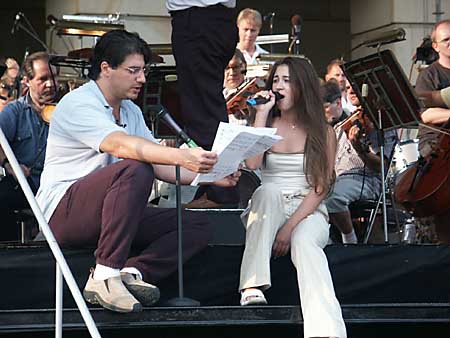
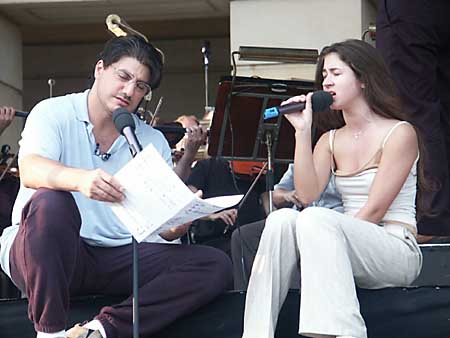

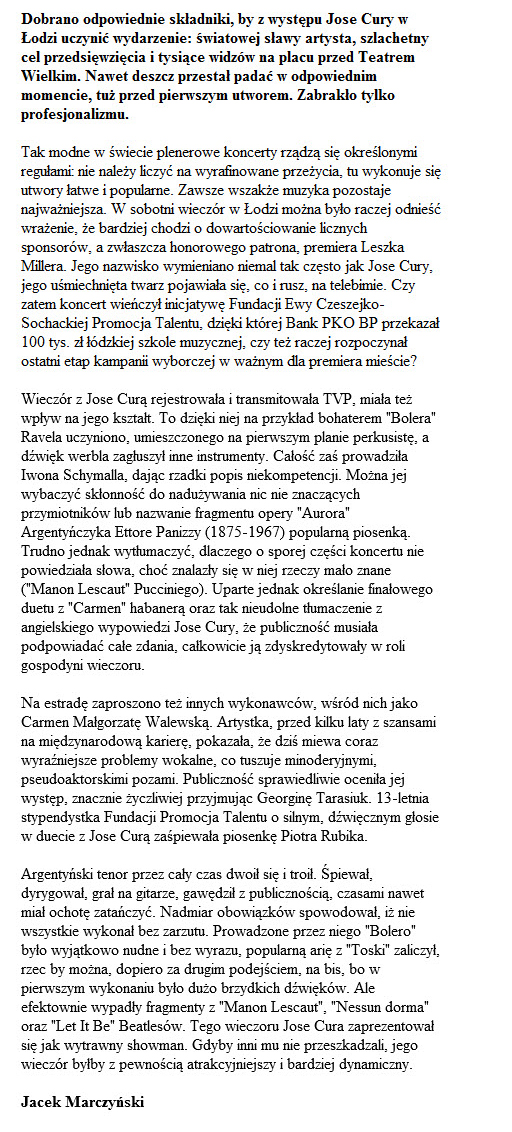
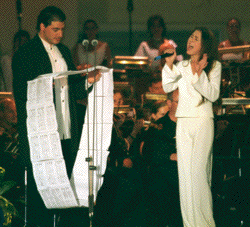
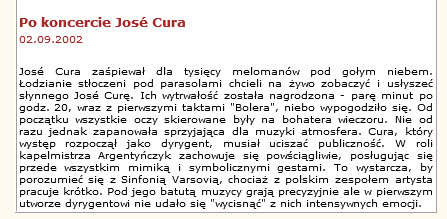
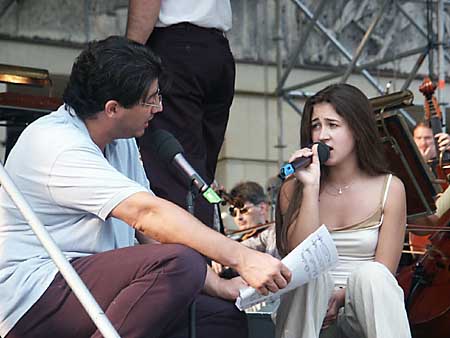
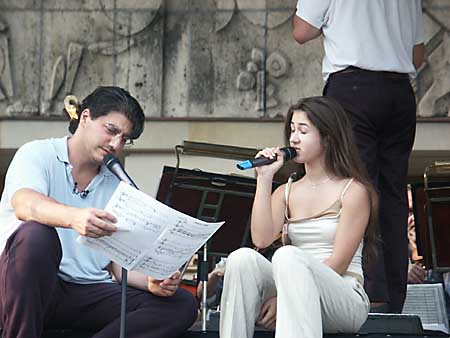
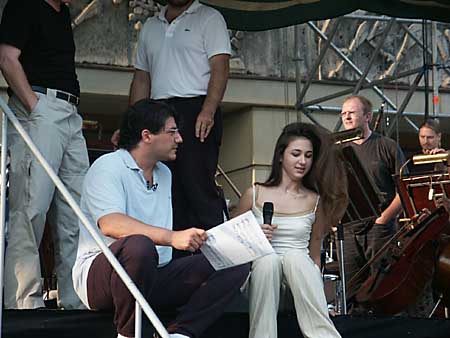
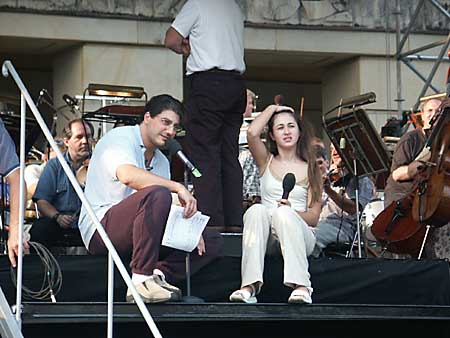
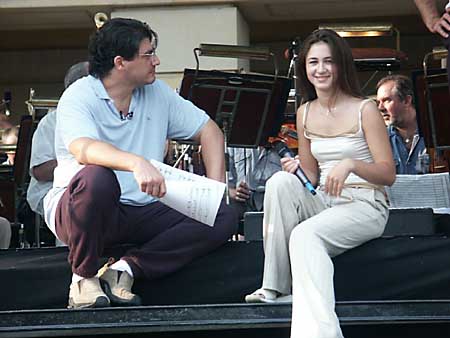
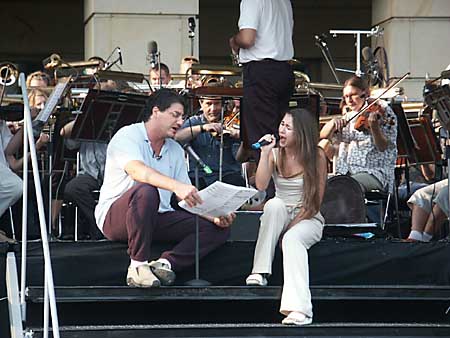
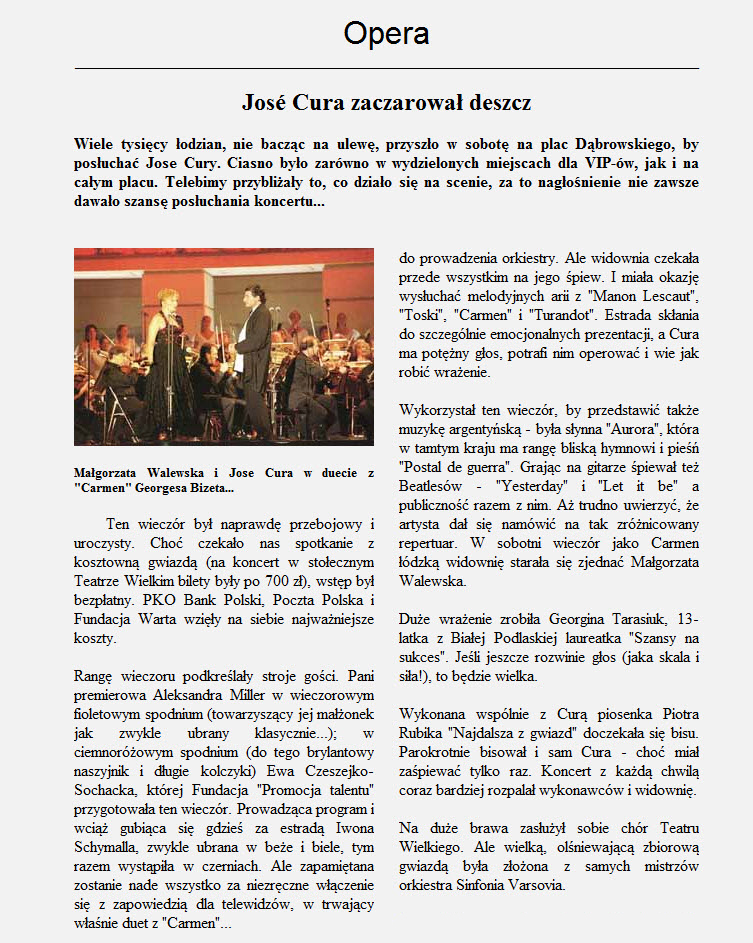
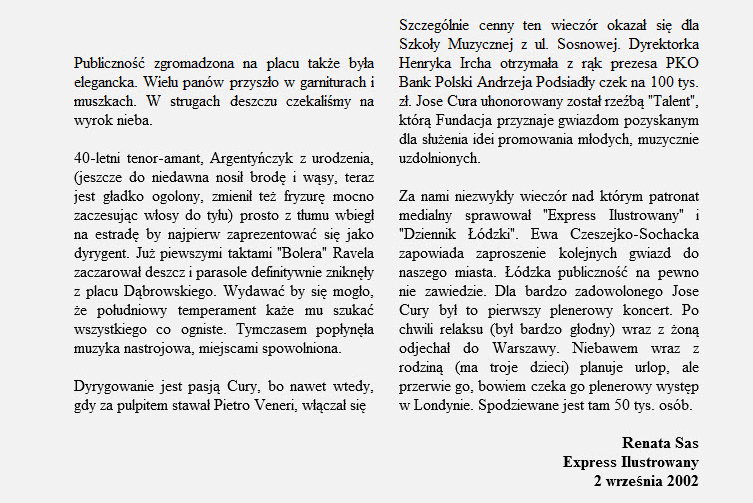
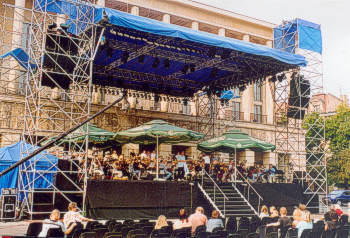
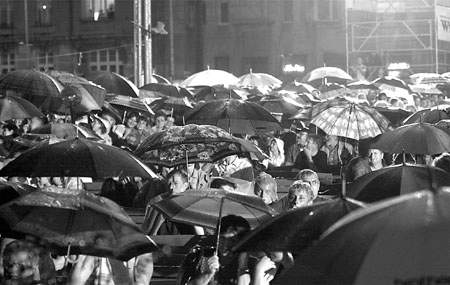
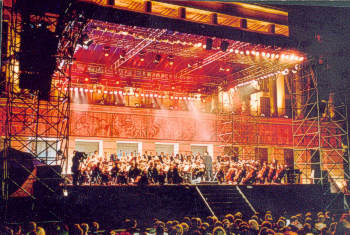
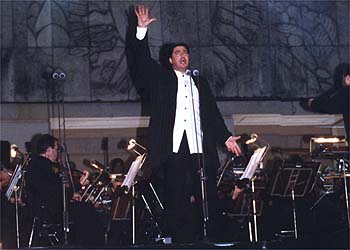
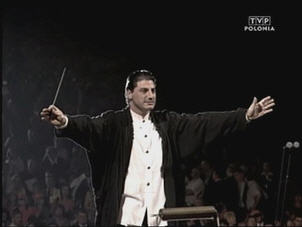
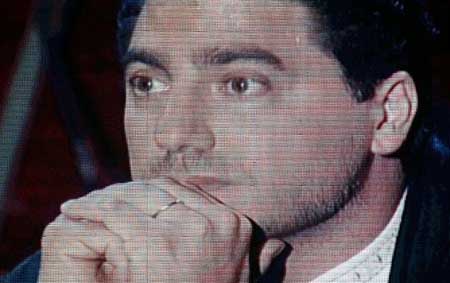
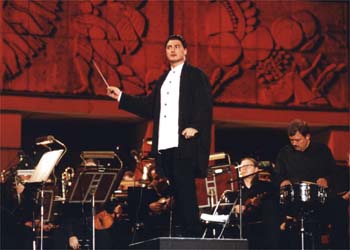
.jpg)
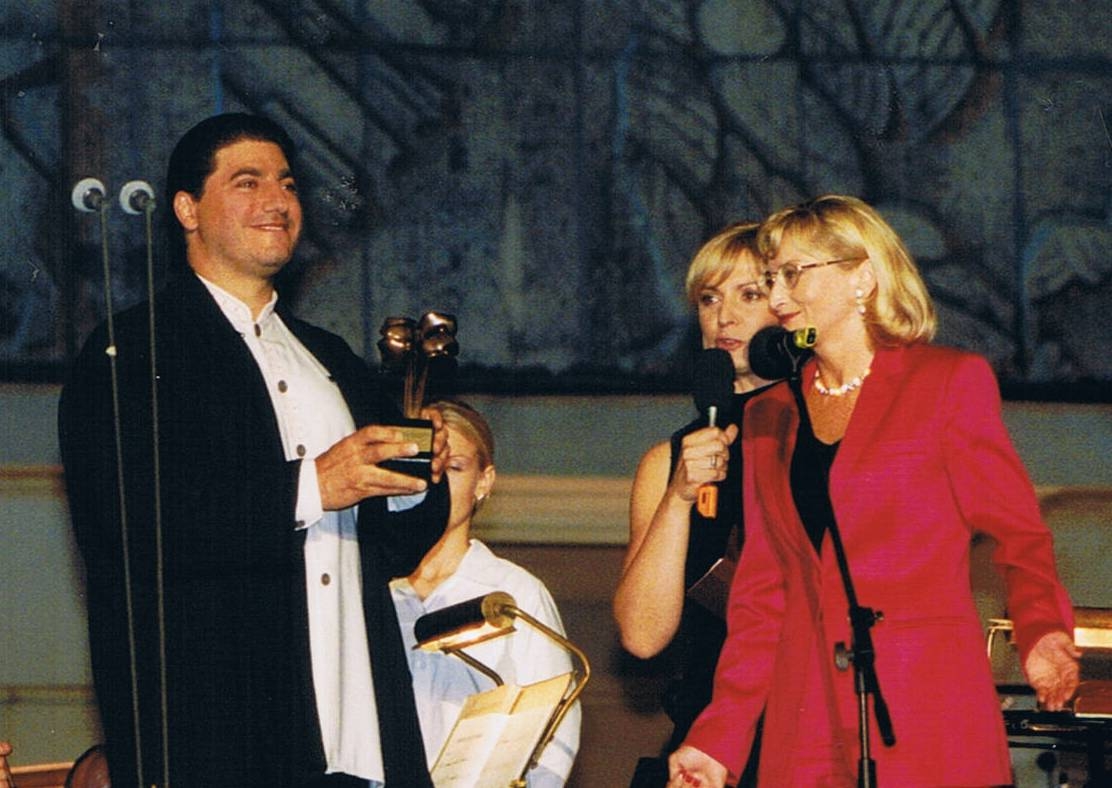
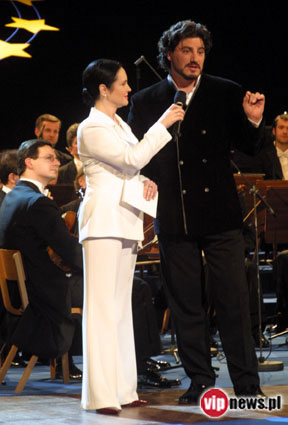
.jpg)
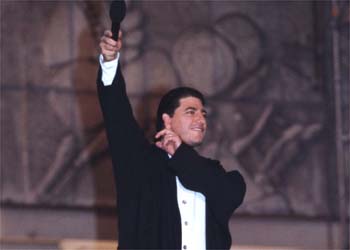
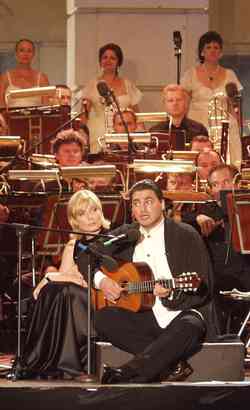
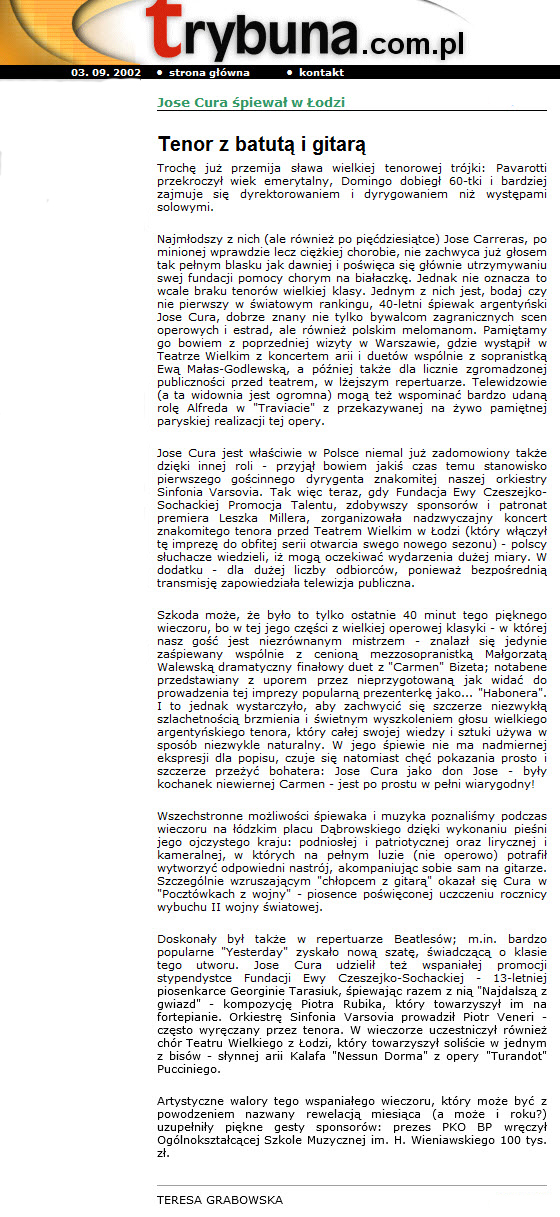

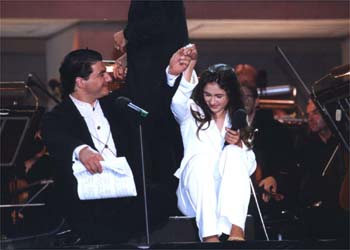
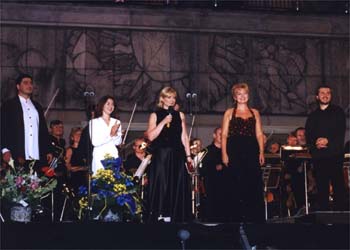
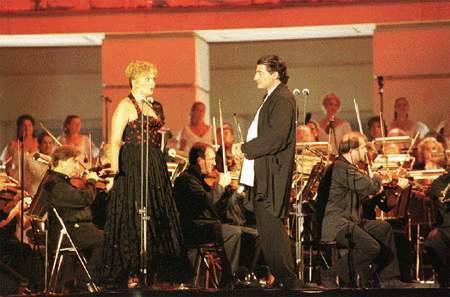
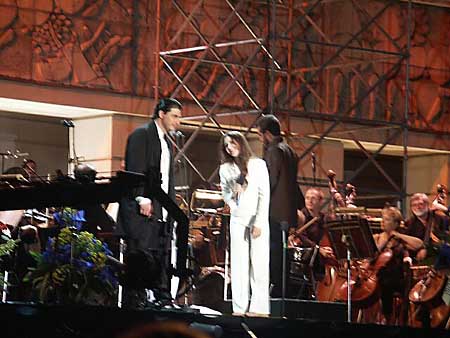
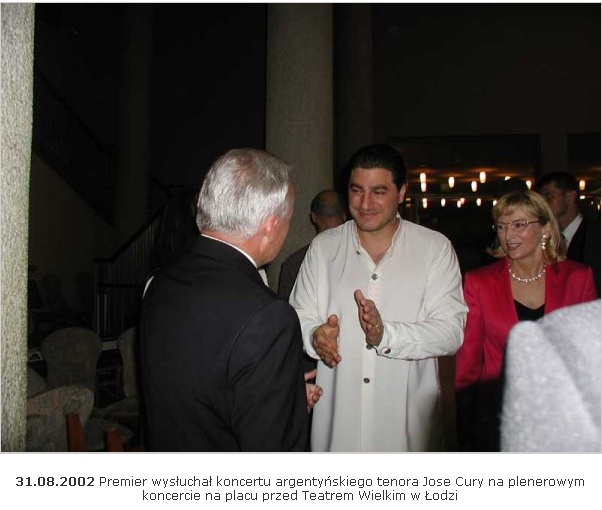
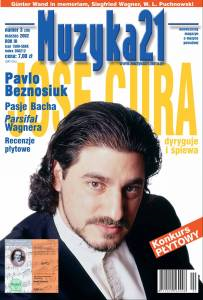
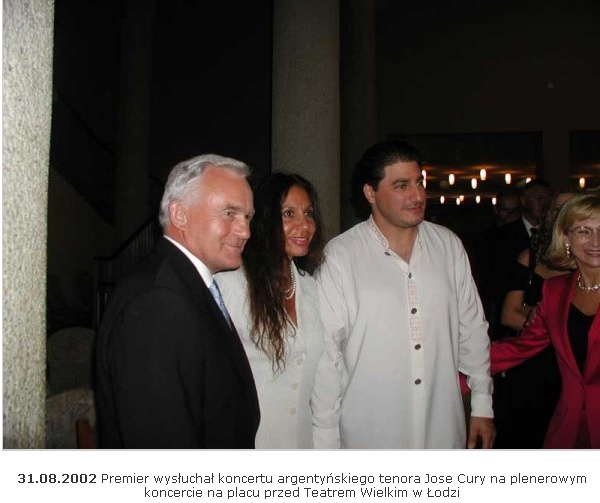
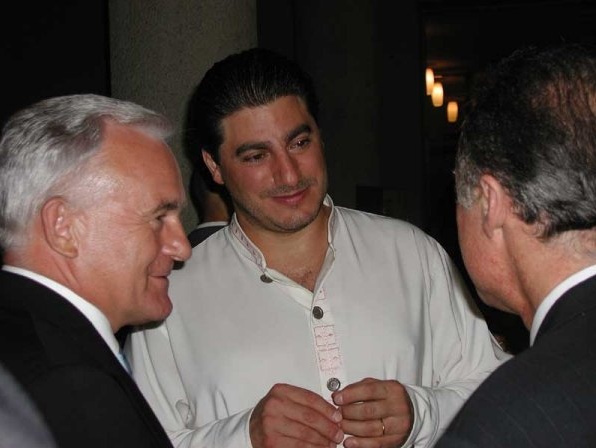
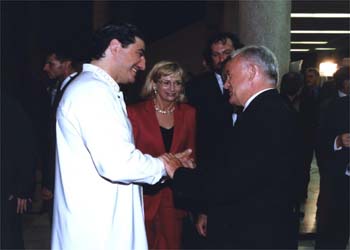
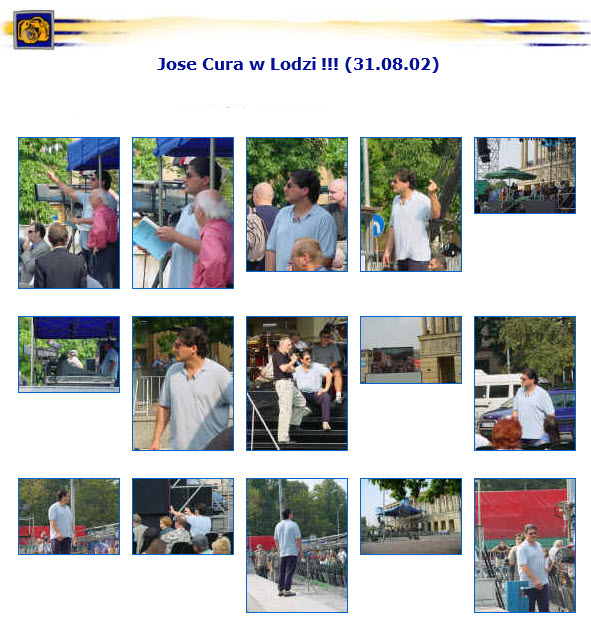
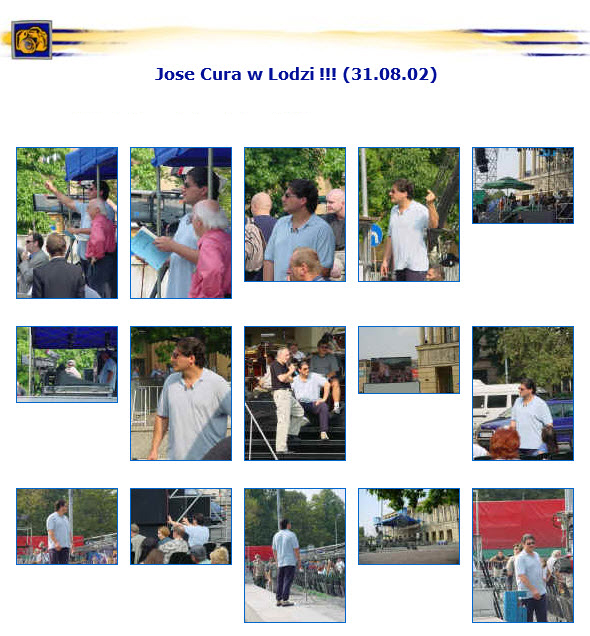
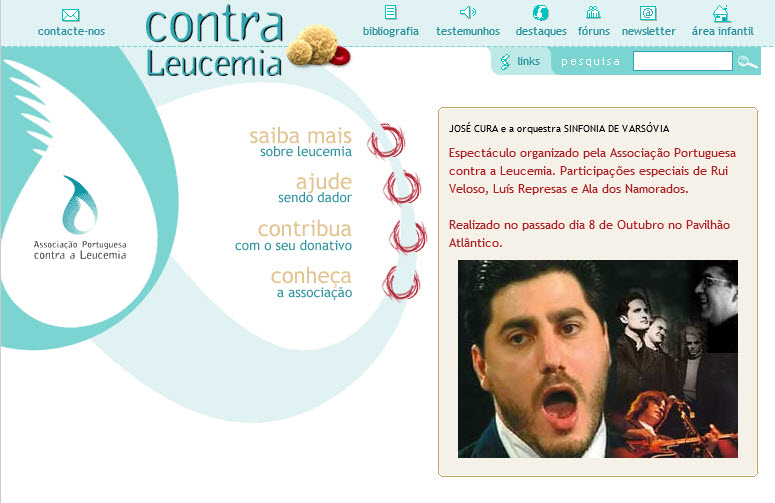
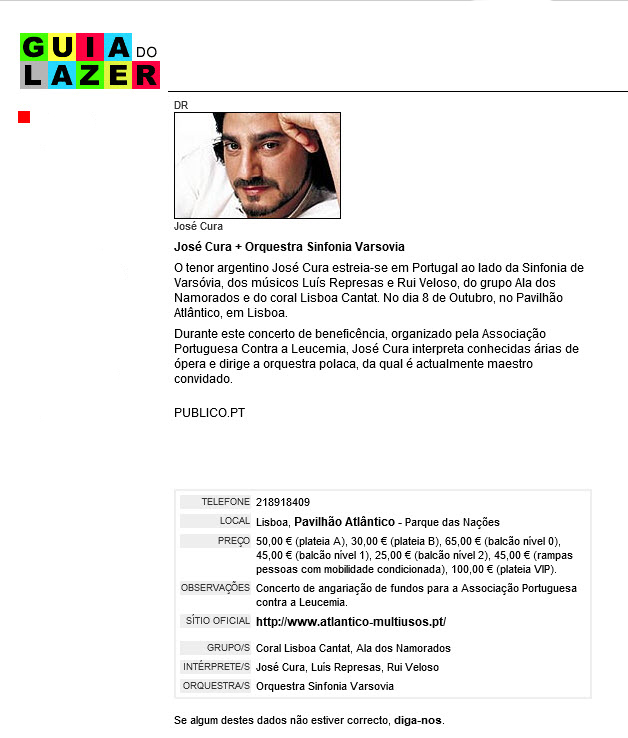


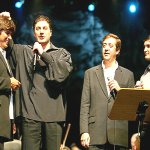
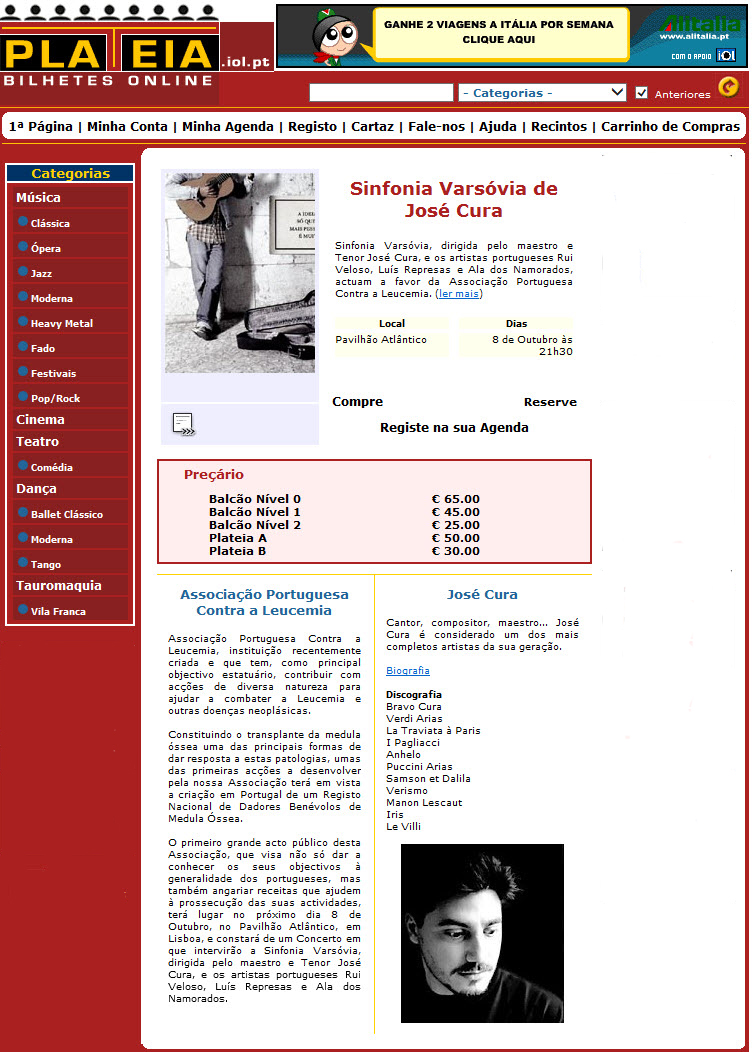
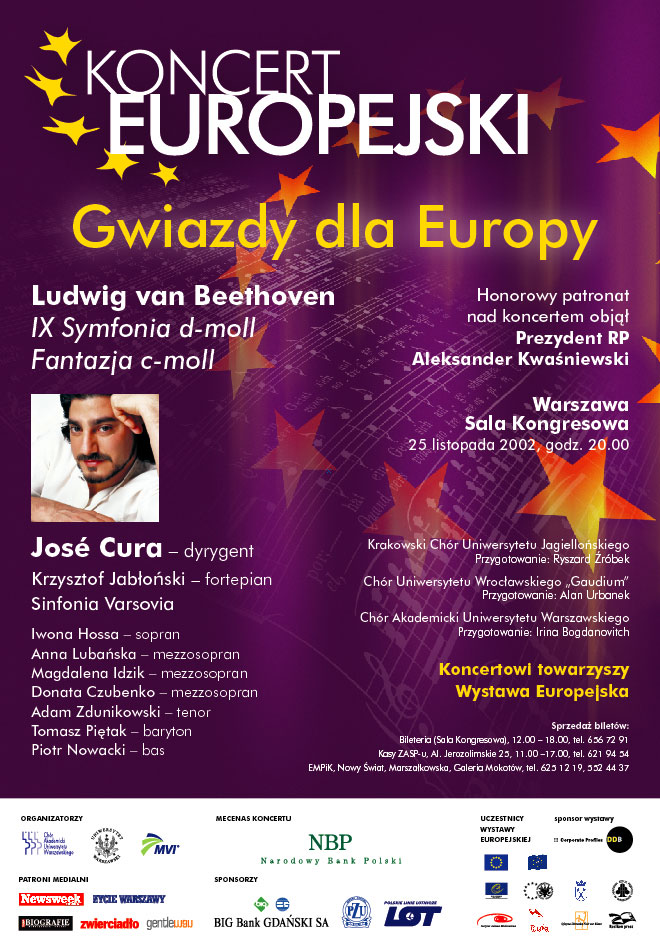
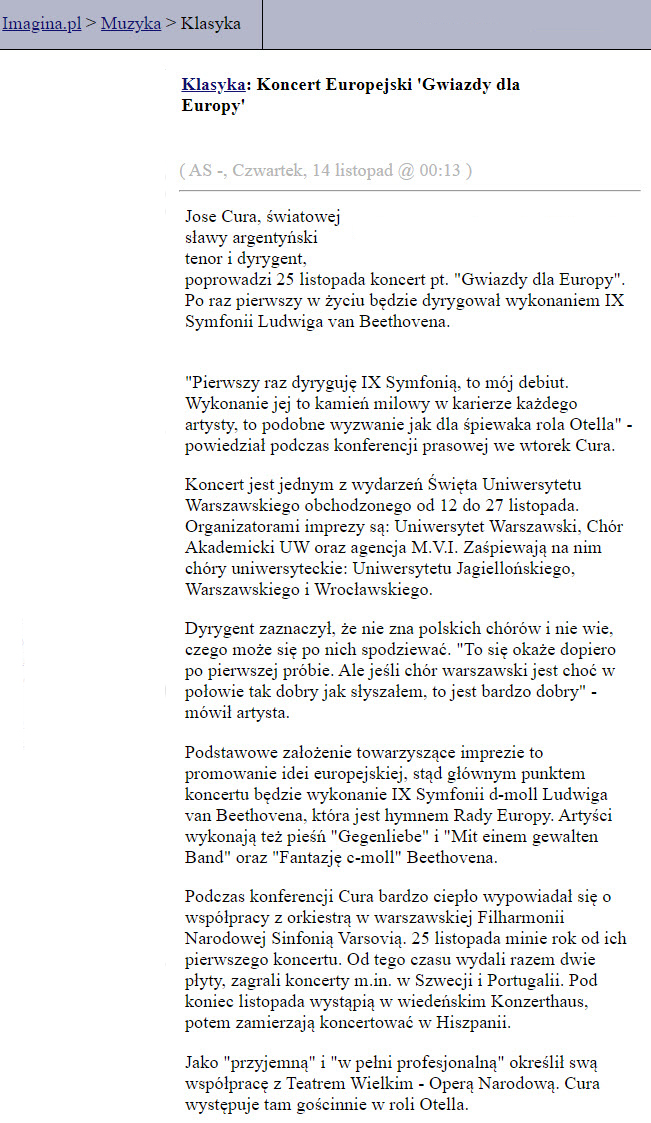
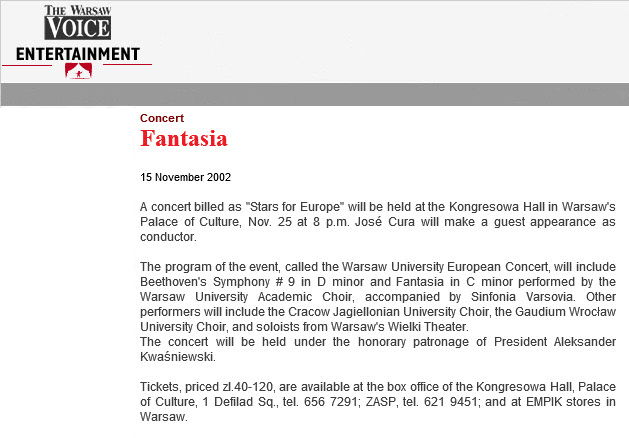
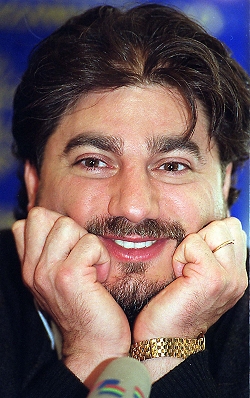
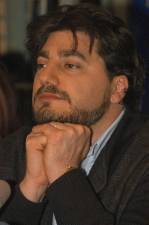
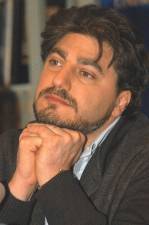
.jpg)
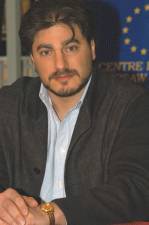
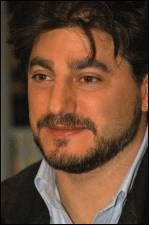
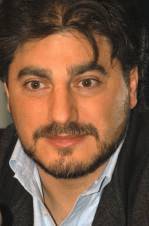
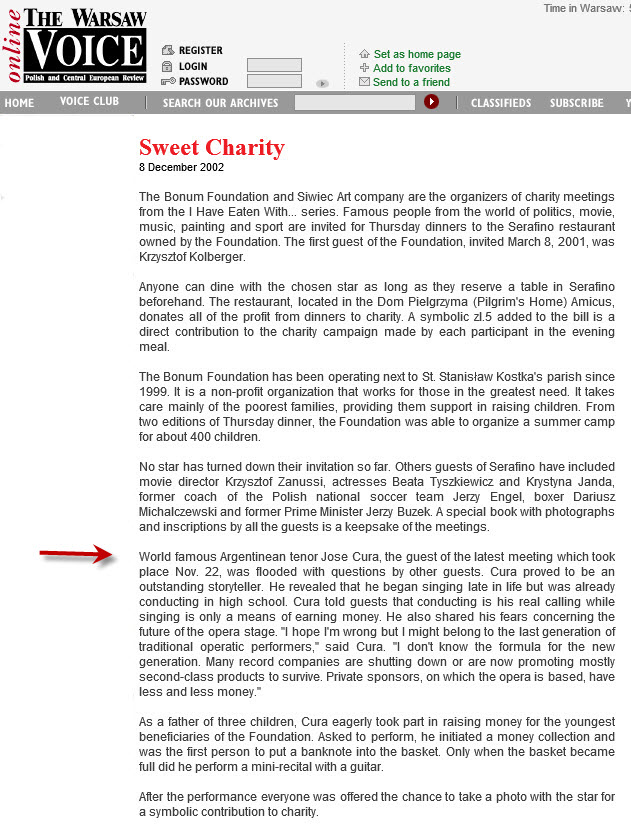
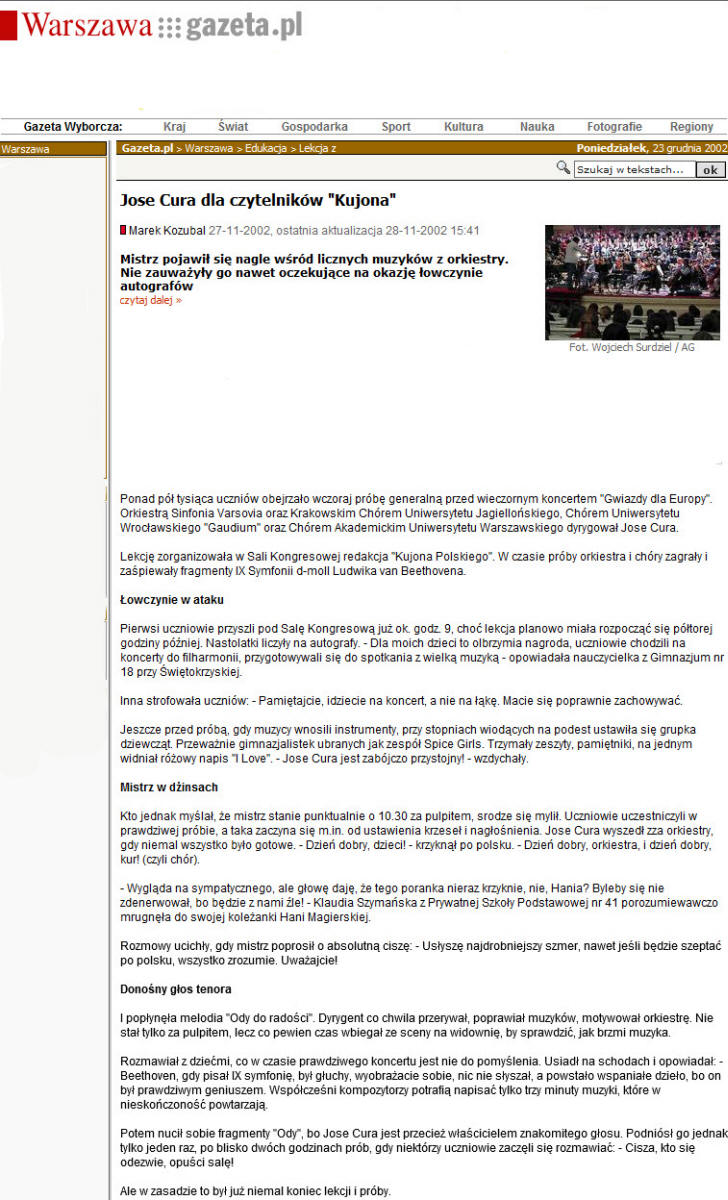
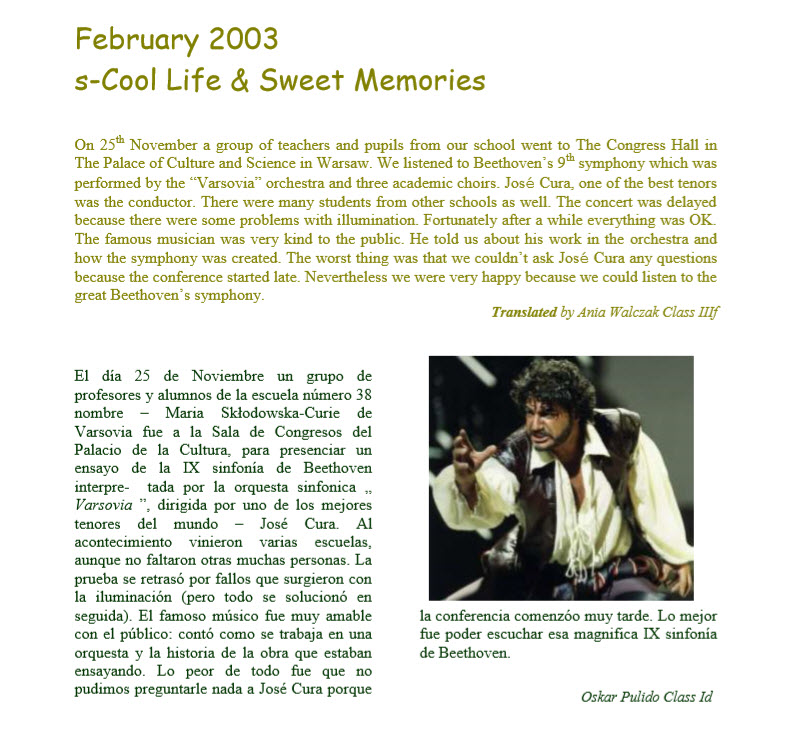
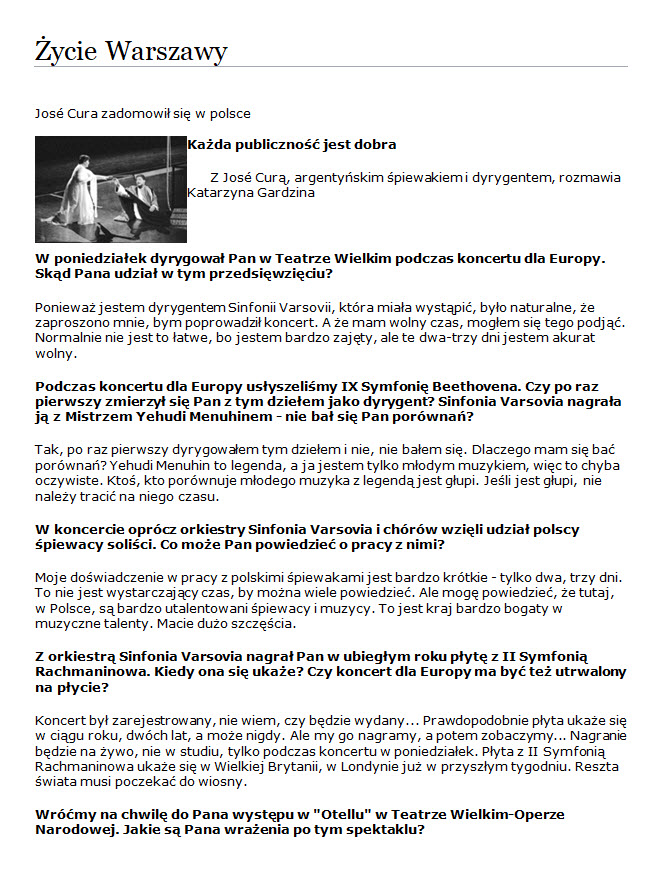
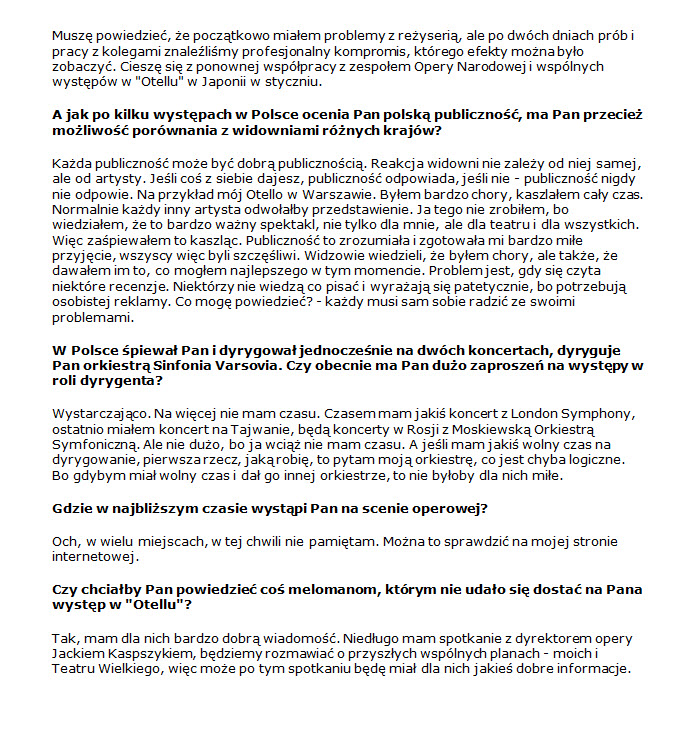
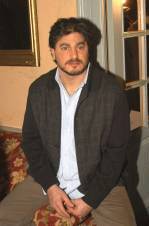
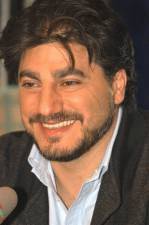
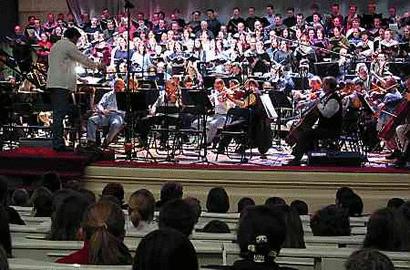
.jpg)
